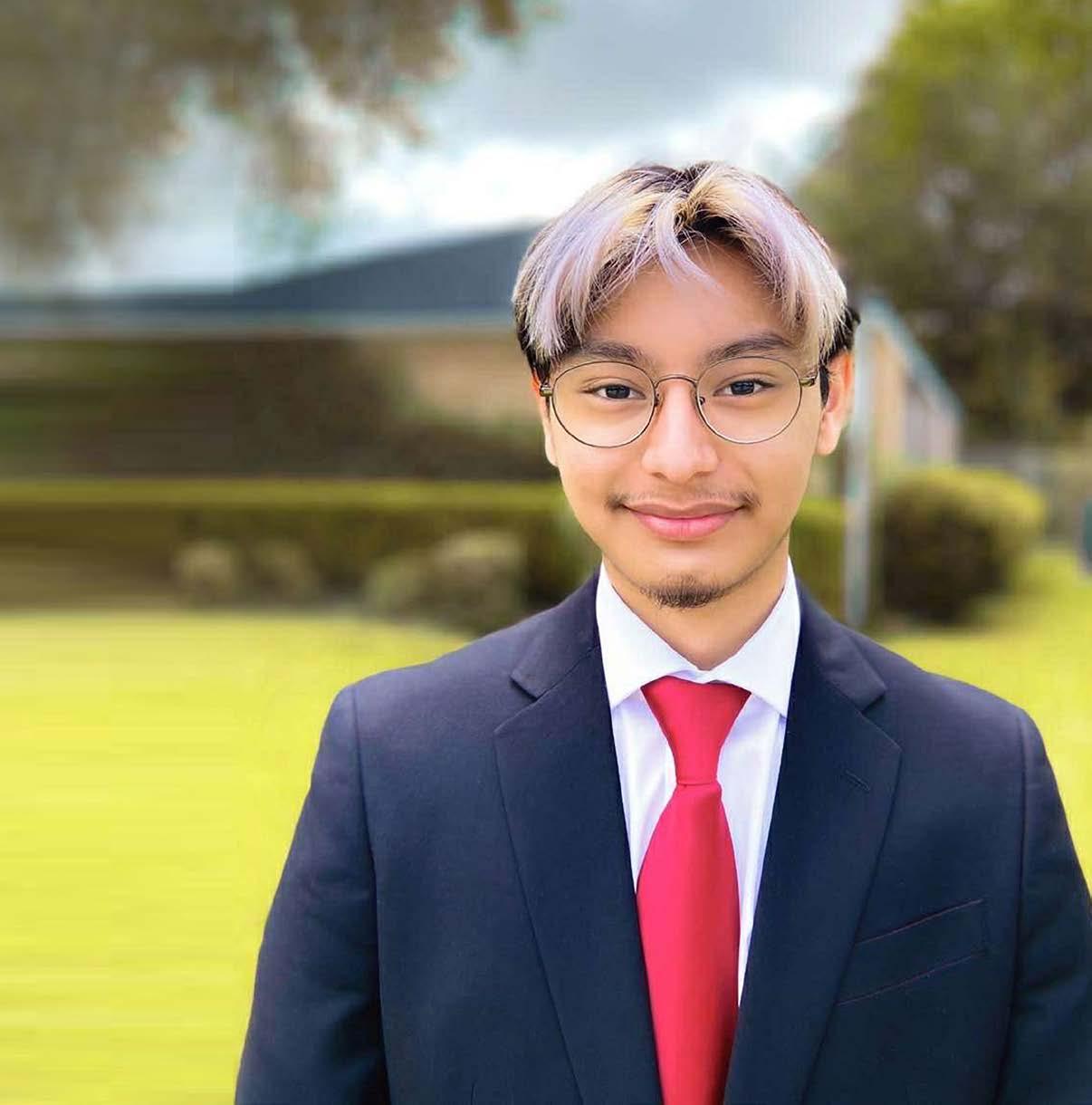I still believe in the power of this space.”
COBIN SZYMANSKI
2021 National Student of the Year • page 55

My voice matters , and every story deserves to be told.”
LOGAN GREEN
2021 Original Spoken Word Poetry Champion • page 50

page 28
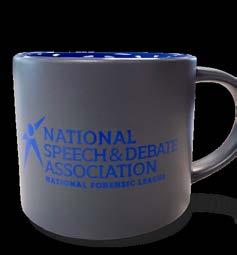
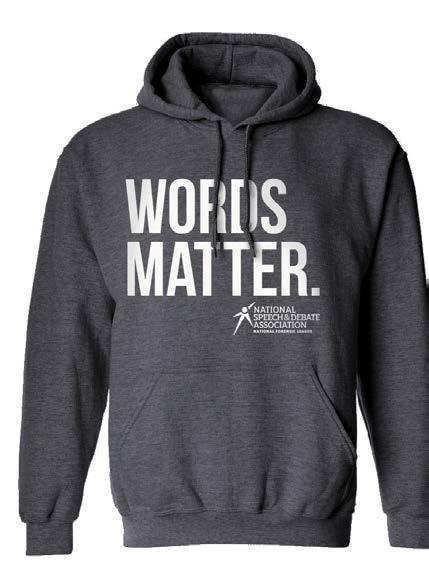
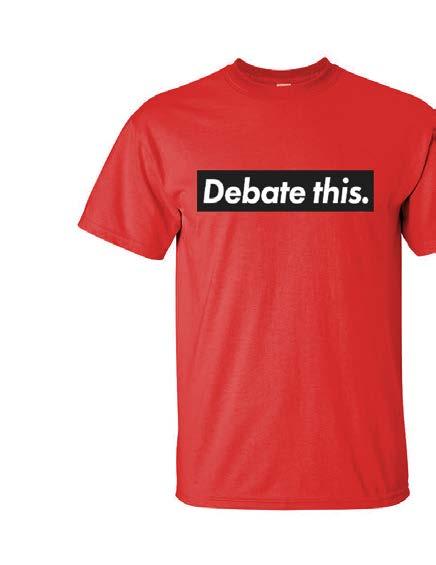


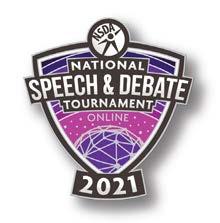





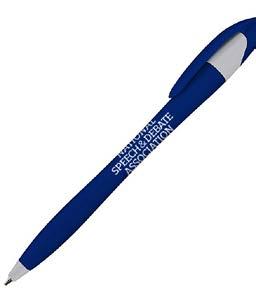
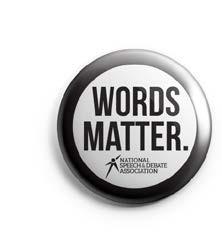




I still believe in the power of this space.”
COBIN SZYMANSKI
2021 National Student of the Year • page 55

My voice matters , and every story deserves to be told.”
LOGAN GREEN
2021 Original Spoken Word Poetry Champion • page 50

page 28

















Thank you to all of the students and coaches who joined us this summer for the 28th Annual UT National Institute in Forensics. The UTNIF continues to be one of the largest and most accomplished summer forensic programs in the country. Just a few reasons why our students keep coming back year after year: incomparable education, superior resources, unmatched faculty, reasonable rates, tremendous alumni, and best of all—we look forward to working with our students live for the summer in Austin, Texas!
Thank you to all of the students and coaches who joined us this summer for the 28th Annual UT National Institute in Forensics. The UTNIF continues to be one of the largest and most accomplished summer forensic programs in the country. Just a few reasons why our students keep coming back year after year: incomparable education, superior resources, unmatched faculty, reasonable rates, tremendous alumni, and best of all—we look forward to working with our students live for the summer in Austin, Texas!
Thank you to all of the students and coaches who joined us this summer for the 28th Annual UT National Institute in Forensics. The UTNIF continues to be one of the largest and most accomplished summer forensic programs in the country. Just a few reasons why our students keep coming back year after year: incomparable education, superior resources, unmatched faculty, reasonable rates, tremendous alumni, and best of all—we look forward to working with our students live for the summer in Austin, Texas!
Thank you to all of the students and coaches who joined us this summer for the 28th Annual UT National Institute in Forensics. The UTNIF continues to be one of the largest and most accomplished summer forensic programs in the country. Just a few reasons why our students keep coming back year after year: incomparable education, superior resources, unmatched faculty, reasonable rates, tremendous alumni, and best of all—we look forward to working with our students live for the summer in Austin, Texas!
Thank you to all of the students and coaches who joined us this summer for the 28th Annual UT National Institute in Forensics. The UTNIF continues to be one of the largest and most accomplished summer forensic programs in the country. Just a few reasons why our students keep coming back year after year: incomparable education, superior resources, unmatched faculty, reasonable rates, tremendous alumni, and best of all—we look forward to working with our students live for the summer in Austin, Texas!
www.utspeech.net
www.utspeech.net
www.utdebatecamp.com
the camp?
Is it the camp?
Is it the camp?
Is it the camp?
Is it the camp?
partially. Success is a product of excellent and immensely talented students, incredibly hard working coaches, supportive parents and schools, and exceptional amounts of time that include investment in mer opportunities. It is that understanding that makes UTNIF one of the largest comprehensive institutes in the country year after year, and why we have assembled some of the brightest forensic minds nation for our program. It is also that educational philosophy that has enabled alumni of our summer programs to succeed at every level, from high school and well into collegiate forensic competition.
Only partially. Success is a product of excellent and immensely talented students, incredibly hard working coaches, supportive parents and schools, and exceptional amounts of time that include investment in summer opportunities. It is that understanding that makes UTNIF one of the largest comprehensive institutes in the country year after year, and why we have assembled some of the brightest forensic minds in the nation for our program. It is also that educational philosophy that has enabled alumni of our summer programs to succeed at every level, from high school and well into collegiate forensic competition.
Only partially. Success is a product of excellent and immensely talented students, incredibly hard working coaches, supportive parents and schools, and exceptional amounts of time that include investment in summer opportunities. It is that understanding that makes UTNIF one of the largest comprehensive institutes in the country year after year, and why we have assembled some of the brightest forensic minds in the nation for our program. It is also that educational philosophy that has enabled alumni of our summer programs to succeed at every level, from high school and well into collegiate forensic competition.
Only partially. Success is a product of excellent and immensely talented students, incredibly hard working coaches, supportive parents and schools, and exceptional amounts of time that include investment in summer opportunities. It is that understanding that makes UTNIF one of the largest comprehensive institutes in the country year after year, and why we have assembled some of the brightest forensic minds in the nation for our program. It is also that educational philosophy that has enabled alumni of our summer programs to succeed at every level, from high school and well into collegiate forensic competition.
Only partially. Success is a product of excellent and immensely talented students, incredibly hard working coaches, supportive parents and schools, and exceptional amounts of time that include investment in summer opportunities. It is that understanding that makes UTNIF one of the largest comprehensive institutes in the country year after year, and why we have assembled some of the brightest forensic minds in the nation for our program. It is also that educational philosophy that has enabled alumni of our summer programs to succeed at every level, from high school and well into collegiate forensic competition.
We offer our most sincere congratulations to all of the students who qualified for and attended the 2021 NSDA National Speech & Debate Tournament. And to all of the students who were recognized with awards, congratulations on a task well done. To all of our alumni and to our incoming Longhorns, Hook 'Em!
offer our most sincere congratulations to all of the students who qualified for attended the 2021 NSDA National Speech & Debate Tournament. And to all of students who were recognized with awards, congratulations on a task well . To all of our alumni and to our incoming Longhorns, Hook 'Em!
We offer our most sincere congratulations to all of the students who qualified for and attended the 2021 NSDA National Speech & Debate Tournament. And to all of the students who were recognized with awards, congratulations on a task well done To all of our alumni and to our incoming Longhorns, Hook 'Em!
We offer our most sincere congratulations to all of the students who qualified for and attended the 2021 NSDA National Speech & Debate Tournament. And to all of the students who were recognized with awards, congratulations on a task well done To all of our alumni and to our incoming Longhorns, Hook 'Em!
We offer our most sincere congratulations to all of the students who qualified for and attended the 2021 NSDA National Speech & Debate Tournament. And to all of the students who were recognized with awards, congratulations on a task well done. To all of our alumni and to our incoming Longhorns, Hook 'Em!
UTNIF
UTNIF
Dept. of Communication Studies
Dept. of Communication Studies
1 University Station
1 University Station Mail Code A1105
Mail Code A1105
Austin, Texas 78712-1105
Austin, Texas 78712-1105
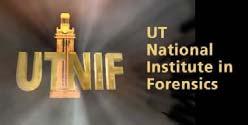




Part of what I love about speech and debate is the way it teaches us to ask questions, whether that be the way something works, the path we’re headed down, or our preconceived notions. Ultimately, I think it encourages our alumni to be lifelong learners. If you’re naturally curious, this issue is for you. A new school year means new opportunities for learning. Sharpen your pencils (I’m old school!) and let’s dive in.
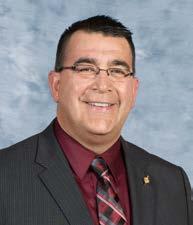
Try something new. In this issue, we share activities for getting started with Impromptu, one of our most popular events with middle schoolers and high school novices alike. We also consider new strategies for online debate and learn about Original Spoken Word Poetry from the event’s first national champion! Plus, we learn about the benefits of mentorship from two Kansas coaches.
Ponder the advice of experts. Don’t miss the takeaways from our 2021 conference! Learn from experts in equity, trauma-informed education, anxiety, and more. Plus, check the community’s pulse on the necessity and implications of content and trigger warnings in both speech and debate. As you read, take some time to consider ways to apply their lessons to your own practices.
Set your goals. Use the guide on page 12 to set your team’s sights on new recognition opportunities this year! Check out page 20 to make a plan to introduce new events to students via our grab-and-go Start Here collection of lesson plans—or learn more yourself via our self-paced NSDA Learn courses. Consider starting your season off with our Springboard Series, featuring free online after-school scrimmages and weekend tournaments. Or, build your recruitment strategy with our 10-step guide and explore how to create and support a diverse and equitable team.
Whether you’ve planned your whole season out or are taking it one day at a time, I hope the programs and information featured in this issue help you take on the school year. If you have any questions as you chart your course, our team is here to help yours along the way.
Sincerely,
J. Scott Wunn Executive Director
P.S. Have you renewed your membership?
Be sure to do so by the end of October to ensure you receive the next issue of Rostrum and all the resources and recognition NSDA membership provides!
Rostrum A PUBLICATION OF THE NATIONAL SPEECH & DEBATE ASSOCIATION
401 Railroad Place, West Des Moines, IA 50265-4730 | Phone (920) 748-6206
J. Scott Wunn, Publisher
Amy Seidelman, Editor
Vicki Joss, Managing Editor
Emily Bratton, Graphic Design Assistant
Newsstand Price
$9.99 per issue
Member Subscription Price
$24.99 for one year (5 issues)
Non-Member Subscription Price
$34.99 for one year (5 issues)
Rostrum (ISSN 1073-5526), Copyright © 2021 by the National Speech & Debate Association (NSDA), is published five times per year (Sept., Nov., Feb., Apr., and Aug.) by the NSDA, 401 Railroad Pl., West Des Moines, IA 50265-4730. Business and Editorial Offices: NSDA, 401 Railroad Pl., West Des Moines, IA, 50265-4730. Accounting and Circulation Offices: NSDA, 401 Railroad Pl., West Des Moines, IA 50265-4730. Call (920) 748-6206 to subscribe. Periodicals postage is paid at Des Moines, IA 50318, and additional mailing offices. POSTMASTER: Please send address changes to Rostrum, c/o NSDA, 401 Railroad Pl., West Des Moines, IA 50265-4730. Rostrum provides a forum for the speech and debate community. The opinions expressed by contributors are their own and not necessarily the opinions of the NSDA, its officers, or its members. The National Speech & Debate Association does not guarantee advertised products and services unless sold directly by the NSDA.
Pam Cady Wycoff President Minnesota
Dr. Tommie Lindsey, Jr. Vice President California
Byron R. Arthur Louisiana
David Huston Texas
Adam J. Jacobi Wisconsin
Jennifer M. Jerome Nebraska
Renee C. Motter Colorado
James W. Rye III Alabama
Dr. Alan H. Coverstone District of Columbia
Dr. Mike Edmonds Colorado
Sara Gibson District of Columbia
Anoop Mishra Alabama
To learn more about the Board, visit www.speechanddebate.org/ meet-the-team. You may also contact the Board by emailing board@speechanddebate.org.
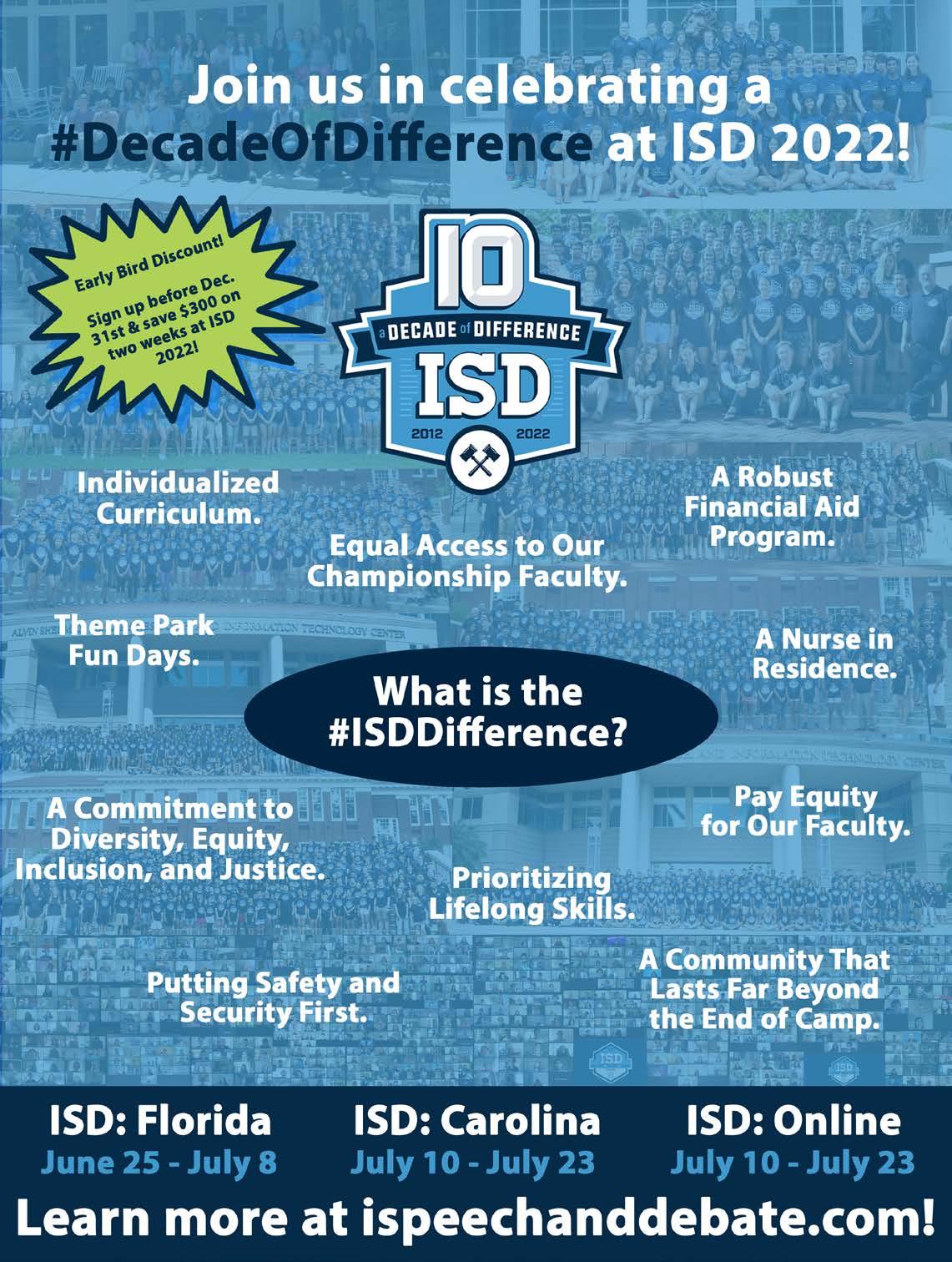




Topic specific, quality arguments
Topic specific, quality arguments
Provide excellent models of argument and presentation
Provide

models of argument and presentation

The high quality Policy-CX evidence your debaters need to jump start their research. Affirmatives, disadvantages, counterplans, kritiks, topicality arguments. Aff, Neg, Sept, Oct-March and May supplements.
The high quality Policy-CX evidence your debaters need to jump start their research. Affirmatives, disadvantages, counterplans, kritiks, topicality arguments. Aff, Neg, Sept, Oct-March and May supplements.
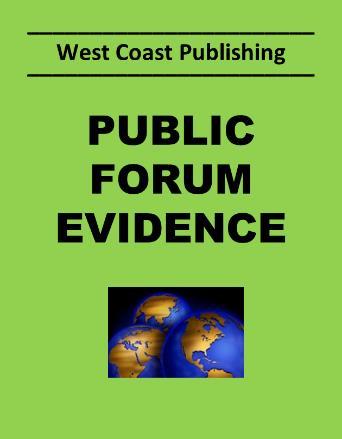
Excellent topic specific LD evidence and topic analysis for your LD debaters. Aff and neg cases, definitions, topic arguments. We cover ALL NSDA and UIL LD topics for the year.
Excellent topic specific LD evidence and topic analysis for your LD debaters. Aff and neg cases, definitions, topic arguments. We cover ALL NSDA and UIL LD topics for the year.
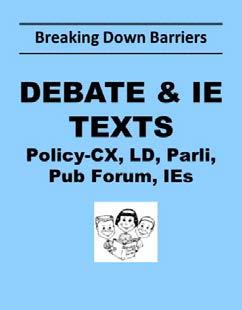
instruction for
Parli, Pub Forum Debate, and Individual Events. Prepbooks are great handouts to help students prepare and teacher materials make instruction easier.

Member students and one chapter advisor per school are eligible to vote!
The PF Wording Committee has created a topic area with two resolutions for each topic cycle. All potential topics for the year were released in June. One week prior to the topic being released for that topic cycle, member students and one chapter adviser per active school will vote on which of the two topics they prefer. The topic that receives the most votes will be the topic for that cycle. The goal of this process is to increase transparency about topic selection and introduce new possibilities for coaches who teach debate in the classroom.
October 1 November/December PF Topic Announced
December 1 January PF Topic Announced
January 1 February PF Topic Announced
February 1 March PF Topic Announced
March 1 April PF Topic Announced
May 1 National Tournament PF Topic Announced
June 20 List of Potential PF Topic Areas Announced for 2022-2023
Aug. 1 - Aug. 7 Voting for the 2022 September/October PF Topic Occurs
August 8 2022 September/October PF Topic Announced
The LD Wording Committee has assigned a set of three topics to each bi-monthly topic cycle. All potential topics for the year were released in June. One week prior to the topic being released for that topic cycle, member students and one chapter adviser per active school will vote on which of the three topics they prefer. The topic that receives the most votes will be the topic for that cycle. The goal of this process is to increase transparency about topic selection and introduce new possibilities for coaches who teach debate in the classroom.
October 1 November/December LD Topic Announced
December 1 January/February LD Topic Announced
February 1 March/April LD Topic Announced
May 1 National Tournament LD Topic Announced
June 20 List of Potential LD Topics Announced for 2021-2022
Aug. 1 - Aug. 7 Voting for the 2022 September/October LD Topic Occurs
August 8 2022 September/October LD Topic Announced
The National Federation of State High School Associations (NFHS) handles selection of the annual topic. Each state organization, the National Speech & Debate Association (NSDA), the National Catholic Forensic League (NCFL), and the National Debate Coaches Association (NDCA) all have voting privileges.
• Topic synopsis released at www.speechanddebate.org/topics in September
• Preliminary voting on five topics occurs online in September and October
• Final voting on two topics occurs online in November and December
• Topic for 2022-2023 released by the NFHS in January 2022

SEPTEMBER/OCTOBER 2021
Public Forum Debate
Resolved: The North Atlantic Treaty Organization should substantially increase its defense commitments to the Baltic states.
SEPTEMBER/OCTOBER 2021
Lincoln-Douglas Debate
Resolved: The member nations of the World Trade Organization ought to reduce intellectual property protections for medicines.
The NSDA also offers a “Civil Disobedience” resolution that may be used during the first two months of a novice LD season. Coaches are encouraged to check with tournament hosts in their area before exclusively prepping for one topic over another.
2021–2022
Resolved: The United States federal government should substantially increase its protection of water resources in the United States.
2021–2022
Resolved: On balance, societies benefit from religious belief and practice.

Given the roller coaster of challenges that transpired last school year and the looming uncertainty of the Delta variant’s impact, I recently found a voice in my head focusing on everything that could go wrong rather than what is going right. So, I consciously decided not to go down that road. Instead, I decided to focus on gratitude. Ironic? Maybe. Necessary? Yes.
Now, I don’t want you to think I’m offering a “Pollyannalike” denial of the heavy load that teachers and coaches handle. However, I do hope that, in some small way, this might help the start of your school year.
One of the ways I foster gratitude is by keeping a gratitude journal. I’ve tried various strategies, but the best advice I’ve followed is to write down three things every day for which I am grateful. However, I cannot repeat the same things. Continually looking for different moments has been uplifting. Why? Well, a poster I noticed in a classroom while judging a round said it best: “The Little Things? The Little Moments? They Aren’t LITTLE.”
Starting a new school year with gratitude
So, in that spirit, I want to share three moments related to our speech and debate community for which I am grateful. The beauty of expressing gratitude is that it is reciprocal in nature. It not only impacts the person acknowledging the gratitude, but, if expressed to the people to whom you are grateful, it positively impacts them. My hope is that will be the case for you.
1I’m grateful for a story that a coach at a very small school of about 120 students emailed me. She deals with everything from interp cuttings to debate cases—and much more. They compete at small tournaments. She believes hard work pays off and dreamed of getting a student to the top six at Nationals, but never even thought they could get a school award. However, this year their hard work paid off. Not only did a student on their team get in the top six— they won a team award.
At the end of the email she wrote, “So you can tell this story if anyone ever tells you that a tiny school doesn’t have a prayer in national competition.” Little did she
know that I would have the chance to share this with all of you. Reading her message made my day! Sharing it with you is even better.
2
I’m grateful for a former student who contacted my husband and me this week to share what we call the Real Final Round experience. It’s a time in life, often after graduation, in which the skills learned through speech and debate make a difference. It could be related to a college scholarship or a job interview. The list is undefined and infinite, but a “Real Final Round” will happen.
In this case, her mother was being treated for cancer and ended up in the ICU. Our student explained that she alone met with more than a dozen doctors in a room to collaboratively decide that the best course of action for her mother was to be removed from life support.
In her words: “It was extremely difficult and emotional, but I was able to speak clearly to that room full of doctors, about something so important, without missing a single beat—that is absolutely thanks to speech.
I was able to share what I knew about my mom’s beliefs and wishes and who I knew her to be, and that was the greatest gift. I have had many Real Final Round moments, like when I interviewed for Stanford, but this was the most impactful and powerful... a Real Final Round in a different sense than I’ve ever thought of. Dark, but so important. Wanted to share that with you and express my gratitude.”
3
Because every new school year offers us the opportunity to make the seemingly impossible possible, I am grateful for all the teachers and coaches who, despite adversity, will “show up” this year to develop life-changing skills in their students, build their confidence, and offer them a home on their team that remains in their heart.
I could list more, many more, but that is for another day. Now, it’s your turn. To be continued...

Pam Cady Wycoff NSDA Board President
by Nicole Wanzer-Serrano
Whether students are assigned to advocate for or against a position, like in Public Forum Debate, or are given a specific prompt to speak about like in Impromptu, pre-determined topics are central to many speech and debate events. The topic is one of the ties that bind our community together. At its best, speech and debate on a focused topic equips students with the tools they need to navigate increasingly complex spaces with people holding different core beliefs.
Speech and debate prepares students to be culturally humble and to change their world for the better, but only if it:
• Promotes exploration of new ideas,
• Supports intellectual interaction, and
• Encourages critical self-reflection.
Each year, the NSDA supports two Wording Committees to produce a dozen Lincoln-Douglas topics and a dozen Public Forum topics; participates with the NFHS in the year-long Policy Debate selection process; and
Extemporaneous Debate at each National Tournament. Each of these nearly 900 individual topics/prompts plays an important role in the educational experience for thousands of students, coaches, judges, and audience members. This

produces hundreds of topics for United States Extemporaneous Speaking, International Extemporaneous Speaking, Worlds School Debate, Impromptu, Congressional Debate, and
herculean task is performed by dozens of talented speech and debate experts who volunteer countless hours to create engaging speech and debate topics. However, due to the expanding scope of their
work and the NSDA’s desire to cultivate a topic writing process that addresses the needs of our diverse community, we initiated a pilot program in the hopes of organizationally better supporting our committees and tournament participants.
To ensure that each of these topics best reflects our core value of equity, the NSDA partnered with Dr. Ed Lee III of Converselee, LLC, and the
Barkley Forum for Debate, Deliberation, and Dialogue at Emory University to build equity intentionally into our topic selection process.
We started from the point that finding topics in the ideal area of the Venn diagram (opposite page) was important, but required deliberate work. Settling on cultural humility as the foundation for this journey, we updated each step of the process for each of the impacted events.
The many wording committees and topic subcontractors needed to represent the diversity of our speech and debate community. Each of these dedicated event experts was given training on cultural humility. To define what equity meant in the process, we created a set of topic rubric questions (shown on the next page). These guidelines also provided a common language to discuss topic concerns.
Finally, we added an additional equity check by having all topics screened for equity concerns by Dr. Lee and NSDA staff. Dr. Lee noted specific topics or prompts of concern based on the rubric and used those concerns to begin a conversation with the committee about potential
adjustments. Topics were then either adjusted, remained as is based on the deliberation between the committee and equity checkers, or omitted before final approval by the NSDA.
Like every equity journey, building equity intentionally into the NSDA’s topic selection process required listening to multiple perspectives and a willingness of all parties to engage the process with a sense of curiosity and openness. The pursuit of equity will always be an iterative and ongoing process because the composition and needs of our communities are always changing.
While the 2021 National Tournament successfully created a wide spectrum of topics that better reflected our value of equity, we learned several important lessons. We were reminded of the importance of remaining attuned to the differences between the prepared or impromptu nature of topics. Those differences can dictate initial reactions or access to quality argumentation.
We also learned that we had not built a step in the process to seek feedback on the topics directly from the students at the National Tournament.
Ed Lee III, Ed.D., is Senior Director of the Alben W. Barkley Forum for Debate Deliberation, and Dialogue, which houses Emory University’s nationally acclaimed debate team and its cutting-edge dialogue programs.
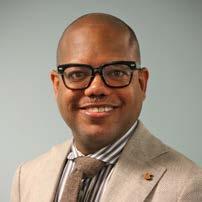
Ed is also the owner and principal creative for Converselee, LLC. Converselee supports organizations working to cultivate their collective genius through improved communication and collaboration strategies. Ed is a highly sought-after trainer and facilitator whose work focuses on the interplay between communication, culture, and diversity and how those can be harnessed to improve the workplace and other communities. His work includes the use of diversity circles, book salons, and collaborative art displays that incorporate social network theory with the pursuit of social justice to produce more innovative and responsive policies, practices, and procedures.
Ed is a relentless advocate for public debate and dialogue. He is national media commentator for U.S. Presidential Debates and the use of arguments in public discourse. He is routinely seen on national and local media outlets discussing presidential debate strategies and their impact on national politics.
Our topic rubric is shared here both to serve as a resource for your own journeys for building equity into your tournaments, but also because we need your help. In order to improve upon this process, we would love your feedback on the process and the rubric. We are committed to learning from your feedback and evolving as an organization.
Intentionally building equity into the speech and debate topic process is just one of the many steps
the NSDA is taking to work conscientiously to model and foster an inclusive and equitable speech and debate experience for all.
Please share this survey with your students, your alumni, and your coaches!
Nicole Wanzer-Serrano serves as Director of Development and Diversity, Equity, and Inclusion at the NSDA.
SEND US YOUR SUGGESTIONS FOR PF TOPIC AREAS AND LD RESOLUTIONS Access the online submission forms on our website at www.speechanddebate.org/topics .
In order to do our best to provide students with these skills, one essential step is to CONDUCT A N INTENTIONAL AND ONGOING E VALU ATION OF THE TOPICS we are encouraging students to explore. As such, we offer the following set of questions to evaluate each topic.
In order to do our best to provide students with these skills, one essential step is to CONDUCT A N INTENTIONAL AND ONGOING E VALU ATION OF THE TOPICS we are encouraging students to explore. As such, we offer the following set of questions to evaluate each topic.
In order to do our best to provide students with these skills, one essential step is to CONDUCT A N INTENTIONAL AND ONGOING E VALU ATION OF THE TOPICS we are encouraging students to explore. As such, we offer the following set of questions to evaluate each topic.
Does the wording of the topic discriminate or unequally value others? Is the topic clear, as well as free of any cultural idioms that may disadvantage some participants?
Does the wording of the topic discriminate or unequally value others? Is the topic clear, as well as free of any cultural idioms that may disadvantage some participants?
Does the wording of the topic discriminate or unequally value others? Is the topic clear, as well as free of any cultural idioms that may disadvantage some participants?
Does the topic promote research and theorizing that challenges students to critically think about their world and consider different perspectives and experiences?
Does the topic promote research and theorizing that challenges students to critically think about their world and consider different perspectives and experiences?
Does the topic promote research and theorizing that challenges students to critically think about their world and consider different perspectives and experiences?
Does the topic enable students to actively theorize and address ethical, social, political, and economic barriers that perpetuate inequalities by advocating for changes to policies and practices?
Does the topic enable students to actively theorize and address ethical, social, political, and economic barriers that perpetuate inequalities by advocating for changes to policies and practices?
Does the topic enable students to actively theorize and address ethical, social, political, and economic barriers that perpetuate inequalities by advocating for changes to policies and practices?
In order to be competitive, does the topic compel students to research and present arguments that would stigmatize, discriminate against, or exclude a traditionally marginalized and disenfranchised community?
In order to be competitive, does the topic compel students to research and present arguments that would stigmatize, discriminate against, or exclude a traditionally marginalized and disenfranchised community?
In order to be competitive, does the topic compel students to research and present arguments that would stigmatize, discriminate against, or exclude a traditionally marginalized and disenfranchised community?
Analyzing the topic from the perspective of many diverse student groups, does researching and theorizing about this topic promote awareness of specific experiences related to oppression and/or larger systemic issues?
Analyzing the topic from the perspective of many diverse student groups, does researching and theorizing about this topic promote awareness of specific experiences related to oppression and/or larger systemic issues?
Analyzing the topic from the perspective of many diverse student groups, does researching and about this topic promote awareness of specific experiences related to oppression and/or larger systemic issues?
In order to attract and sustain participation, does the topic facilitate an exploration of ideas related to established intellectual, social, or cultural interests? Considering the present moment, will theorizing and researching the topic encourage supportive social, emotional, and intellectual interactions amongst the intended participants?
In order to attract and sustain participation, does the topic facilitate an exploration of ideas related to established intellectual, social, or cultural interests? Considering the present moment, will theorizing and researching the topic encourage supportive social, emotional, and intellectual interactions amongst the intended participants?
In order to attract and sustain participation, does the topic facilitate an exploration of ideas related to established intellectual, social, or cultural interests? Considering the present moment, theorizing and researching the topic encourage supportive social, emotional, and intellectual interactions amongst the intended participants?
Furthermore, when creating an array of topics, you will also want to consider whether a significant portion of your topics reflect these questions. These questions are meant to be considered in addition to the above six .
Furthermore, when creating an array of topics, you will also want to consider whether a significant portion of your topics reflect these questions. These questions are meant to be considered in addition to the above six
Furthermore, when creating an array of topics, you will also want to consider whether a significant portion of your topics reflect these questions. These questions are meant to be considered in addition to the above six .
Intentional Inclusion – The topic compels students to explore ethical, social, political, and economic issues in a way that features the experiences and perspectives of traditionally marginalized and disenfranchised communities.
Intentional Inclusion – The topic compels students to explore ethical, social, political, and economic issues in a way that features the experiences and perspectives of traditionally marginalized and disenfranchised communities.
Intentional Inclusion – The topic compels students to explore ethical, social, political, and economic issues in a way that features the experiences and perspectives of traditionally marginalized and disenfranchised communities.
The topic provides opportunities to explore how we should define and live out social justice.
The topic provides opportunities to explore how we should define and live out social justice.
The topic provides opportunities to explore how we should define and live out social justice.
The topic promotes a deeper understanding of power imbalances.
The topic promotes a deeper understanding of power imbalances.
The topic promotes a deeper understanding of power imbalances.


The first place finisher of The American Legion’s National Oratorical Contest is awarded a $25,000 scholarship, second place $22,500, and third place $20,000. As part of the National Speech & Debate Association’s ongoing alliance with The American Legion, those top three finishers may also earn the right to compete in Original Oratory or United States Extemporaneous Speaking at the National Speech & Debate Tournament!
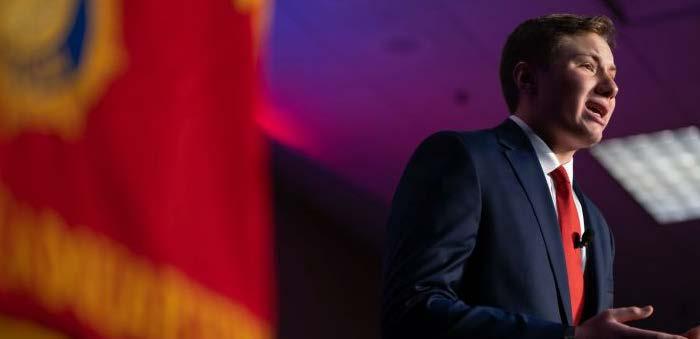
• Visit www.legion.org/oratorical to learn more.
• Click on “ State Contests ” to contact The American Legion Department Headquarters located in your state to learn when the first contest in your area will be.

• Also click on “ Assigned Topics ” to learn the extemporaneous topic areas.
• Prepare your original oration on some aspect of the Constitution with emphasis on the duties and obligations of a citizen to our government.

by Annie Reisener
Membership
in
the Honor Society includes access to a variety of awards for students, coaches, and schools. Here are a few to set your sights on this year!
Eligibility: All member students
Application Required: No
Award Details: This award recognizes students who go above and beyond in their service to their teams, schools, and communities. If an advisor or coach with designated permissions deems an activity as eligible for service points, they may enter them as they would points for competition. Students receive this award when they earn 200 service points in a given year, the maximum number possible in a school year in our Honor Society. www.speechanddebate.org/student-recognition
Eligibility: 5 semesters of high school; Superior
Distinction (750 points); GPA of 3.7 on a 4.0 scale; demonstrated outstanding character and leadership
Application Required: Yes
Award Details: This prestigious award celebrates the academic excellence and competitive success of high school students and is a great achievement to list on college or job applications! From more than 140,000 NSDA member students, fewer than 2% earn this designation. Advisors can apply at no cost on behalf of any qualifying student.
www.speechanddebate.org/academic-all-americannomination-form
Eligibility: All member coaches
Application Required: No
Award Details: This award celebrates the service completed by coaches for our community. Activities like hosting tournaments or recruiting a new chapter school are eligible for service citations, which can be entered by coaches through their NSDA account. Those who earn 20 citations are given a special gold key. Those who receive 50 citations are presented with a bronze plaque. When this award is earned, a letter is sent to the school administrator.
www.speechanddebate.org/coach-recognition
Eligibility: Non-member adults
Application Required: Yes
Award Details: A chapter may elect one Honorary member for each 100 members and degrees earned by that chapter, not more than one a year. Honorary members must be adults who have contributed in some significant way to the speech and debate program of the local chapter, but have not earned Association membership as a student or instructor. This is a great way to generate buy-in from administrators or honor a parent who helps your team!
www.speechanddebate.org/honorary-membershipcertificate-request-form
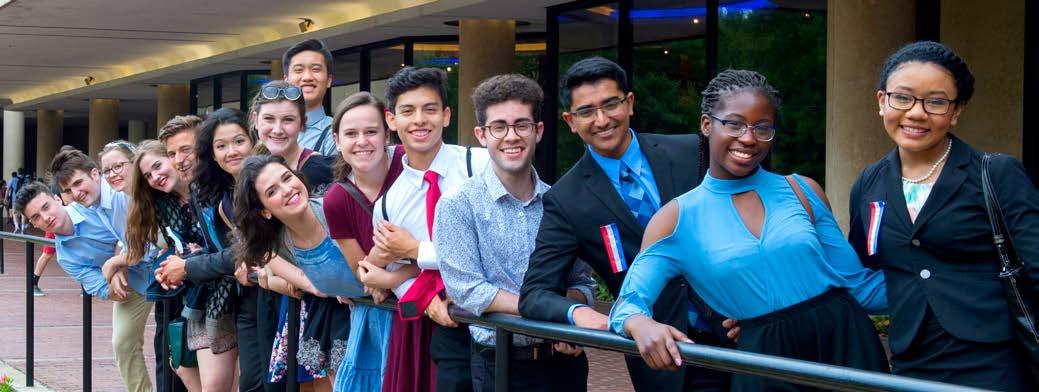
Eligibility: Large high schools with 50 degrees within a threeyear period of membership, or small high schools with 25 degrees within a three-year period
Application Required: No
Award Details: Becoming a charter chapter is the highest honor for high schools in the NSDA. This award indicates that a program has inducted new members and built a successful foundation. Charter status is reviewed and renewed every three years but requires ongoing participation, making it a mark of longevity and student impact over time. New high schools earning charter status receive a plaque.
www.speechanddebate.org/school-recognition
Eligibility: Member schools with strength of at least 100
Application Required: No
Award Details: Club awards celebrate schools based on the number of members and degrees they enrolled the prior year. Ten levels exist, from 100 Club (100 degrees) up to 1,000 Club (1,000 degrees). The award celebrates a program’s growth and the knowledge its students have gained in the last year. When this award is earned, a letter is sent to the school administrator.
www.speechanddebate.org/school-recognition
Annie Reisener serves as Membership Manager at the NSDA.
Download our helpful guide for understanding your team’s strength and why it matters! www.speechanddebate.org/what-is-strength
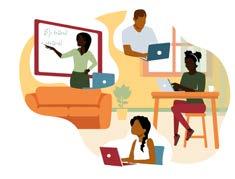
Online Schools – The NSDA continues to offer a district for online schools in 2021-2022. This district is open to eligible schools where instruction takes place online by design, not temporarily due to the pandemic.
Home Schools – If there are home schools in your NSDA district that were previously ineligible for membership due to state rules but are still interested in joining, they can reach out to the NSDA about their eligibility potential for this year.
School Districts – If your school district contains multiple speech and debate programs and might be interested in purchasing all of the district’s school memberships, resource packages, and/or student memberships through one invoice, talk to an administrator in the district about that option and reach out to us. The NSDA works with individuals who coordinate curriculum, academic activities, fine arts, ELA, and more to help centralize those purchases at the district level.
Resource Package Offer – We are offering the 20212022 Resource Package, normally $199, for just $99 to any school renewing membership between August 1 and September 30. Visit www.speechanddebate.org/rp for more information.
Questions? Email us at info@speechanddebate.org
Member students and one chapter advisor per active school are invited to rank the initial five Policy topic resolutions offered for 2022-2023. A synopsis of the topic areas is available online at www.speechanddebate.org/topics Voting concludes October 14, 2021.
Our newest NSDA Learn course applies best practices in youth safety to the speech and debate context, including student-student, coach-student, and judge-student interactions. Upon completion of the course, adults will be able to recognize bullying and sexual harassment, understand how to respond appropriately, and build systems to prevent these behaviors on their team. This practical training, created in partnership with the Women’s Debate Institute, is useful for coaches, judges, team administrators, volunteers, and others in youthserving roles to improve the safety of our students in speech and debate. Enroll for free or learn more at www.speechanddebate.org/learn.
The minutes from the Board of Directors’ Spring Board meeting and July Competition Rules meeting are available online at www. speechanddebate.org/minutes-archive

Your school district may have determined that in-person competition is safe, or you may be competing online again this school year. Either way, the guidance for planning and decision making around your events, provided jointly by the National Federation of High School Associations (NFHS) and the NSDA, could be useful. Considerations necessary for face-to-face and online competition are included. Visit www.speechanddebate.org/2021guidance for the complete guide.
Q uestions? We’re here to help! Email info@speechanddebate.org or call (920) 748-6206 .

Thanks to the generosity of The Julia Burke Foundation, the NSDA has expanded the free online opportunities available via the Springboard Series for the 2021-2022 school year.
by Kevon Haughton
Tabroom.com’s usage has drastically increased over the past year. To continue to support the demand for Tabroom.com use, customer service, and training, the NSDA will begin charging a modest fee for its usage during the 2021-2022 school year.
Tabroom.com’s usage has drastically increased over the past year. To continue to support the demand for Tabroom.com use, customer service, and training, the NSDA will begin charging a modest fee for its usage. As of August 15, 2021, tournament directors began paying a fee based on the number of entries in their tournament before they are able to proceed with the tabulation process.
As of August 15, tournament directors began paying a fee based on the number of entries in their tournament before they are able to proceed with the tabulation process.
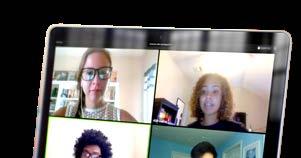

1 Paying for Tabroom.com Use
The payment process for Tabroom.com and NSDA Campus is now automated. At any time, tournament directors can pay their Tabroom.com usage fee or purchase NSDA Campus rooms by navigating to Settings » Tournament » Payment in their Tabroom.com tournament. Tabroom.com settings and/ or NSDA Campus rooms will be activated within 30 minutes of purchase.

Like NSDA Campus, use of Tabroom.com will remain unrestricted until you move on to the tabulation stage of your tournament. You can set up your tournament, adjust tournament settings, allow schools to register for your tournament, and pair rounds before the system will prevent you from moving forward in your tournament without payment.
This is intended to allow you to be comfortable with your entry numbers before paying, estimate the number of rooms you will need based on pairings in advance, and allow new users to test the software before purchasing.
Like NSDA Campus, use of Tabroom.com will remain unrestricted until you move on to the tabulation stage of your tournament. You can set up your tournament, adjust tournament settings, allow schools to register for your tournament, and pair rounds before Tabroom.com will prevent you from moving forward in your tournament without payment. This is intended to allow you to be comfortable with your entry numbers before paying, estimate the number of rooms you will need based on pairings in advance, and allow new users to test the software before purchasing. Any actions taken past the pairing stage of the tournament, including publishing or printing schematics, will not be possible until payment is complete. No refunds or credits are available for overpayments. We encourage you to wait until you are confident in your entry numbers before purchasing to avoid overpayment.
Any actions taken past the pairing stage of the tournament, including publishing or printing schematics, will not be possible until payment is complete. No refunds or credits are available for overpayments. We encourage you to wait until you are confident in your entry numbers before purchasing to avoid overpayment.
On the “Payments” tab, Tabroom.com will calculate the perentry fee owed for your tournament. The first 50 entries of each tournament are free of charge.

Tournaments that use NSDA Campus for an event will not pay the per-event Tabroom.com fee for that event. For example, if a tournament ran Policy Debate on NSDA Campus, Policy entries would not count toward the per-entry fee.
The remaining entries will be charged $0.80 per entry.
Since there is only a 30-minute window between payment and activation, we recommend waiting to purchase Tabroom. com until you are confident in the number of entries in your tournament. No refunds or credits are available for overpayments. To pay the Tabroom.com fee, click “Checkout.”

After clicking “Checkout,” you will be asked to agree to the disclaimers on the following page. The NSDA requires that Tabroom.com tournaments are run by an adult representing an educational institution. Tournament directors will be asked to enter the information of the educational institution on the next screen.

Click “Checkout at NSDA Store” to be taken to the payment page. Although you do not need to be an NSDA Member to purchase Tabroom.com or NSDA Campus rooms, you will need to have a free www.speechanddebate.org website account to complete the purchase. For a quicker purchasing process, be sure to be signed into your free website account before checking out in Tabroom.com.
Click “Proceed to Checkout” and enter your billing information. You may pay by credit card, check, purchase order, or e-check. Select your payment type and click “Place Order.” Regardless of the payment method chosen, Tabroom.com will be activated within 30 minutes. If you are paying by check or purchase order, please do your best to ensure payment is received prior to your tournament’s start date.
NSDA Campus rooms can also be purchased from Settings » Tournament » Payments. Like last year, each NSDA Campus room covers one room for one day of use. If your tournament lasts multiple days, you will purchase sets of rooms for each day.
(continued on next page)
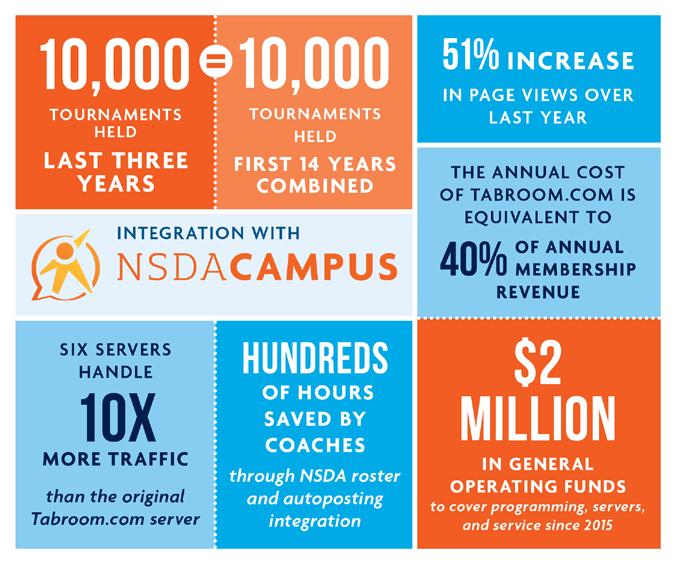
Seven years ago, the National Speech & Debate Association partnered with Chris Palmer, the founder and creator of Tabroom.com, to ensure that this budding piece of tournament software would have a future home for its development and expansion.
Through ownership of Tabroom.com and employment of Chris Palmer as the lead developer, the NSDA has been able to foster significant advancements and improvements to the software, and usage has skyrocketed beyond what we imagined was possible. We are grateful to those who will continue to support the development, maintenance, and ongoing services of Tabroom.com.
Thank you for your trust that we will be good stewards of the system that so many have relied on over the past decade and a half.
Tabroom.com will help you estimate the number of NSDA Campus rooms needed for one day of preliminary rounds. For debate, it will take into account whether you are flighting rounds. For speech and Congress, it will divide your entry numbers by the default section size in your event settings. For the best estimate, make sure your entry numbers are final and your settings are complete! Make sure you double check the estimates with your own calculations.

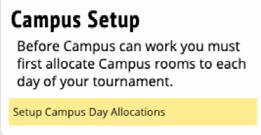
When you are ready to purchase your NSDA Campus rooms, enter the number of rooms you wish to purchase and follow the payment instructions described above. Once payment is complete, don’t forget to allocate your purchased rooms to days at Settings » Tournament » Payment
Based on your feedback, we are now testing a new type of NSDA Campus room that permits a limited number of coach observers to join the room during a round. For $12 per room per day, a tournament director can purchase rooms that allow coaches to designate observers on a per-round and per-entry basis. An event or division using Campus with Observers must do so for the entirety of the tournament; it is not possible to purchase normal NSDA Campus rooms for one day and Campus with Observer rooms for a different day.
Due to technical limits on the number of participants in Campus rooms, Campus with Observers is limited to two observers per entry in debate events or one observer per

entry in speech events. In order to preserve the quality of competition, Campus with Observers cannot work with Congress. Campus with Observers is intended to be a way for coaches to observe their students in round. To allow noncoaches or large audiences to view rounds, please consider livestreaming!
If your students are competing in an event using Campus with Observers rooms, you can designate observers from the tournament dashboard. Only Tabroom.com accounts with Coach/Administrator access to your school in Tabroom. com (which can be designated on the “Access” tab) may be designated as observers.
Coaches may designate observers on their school tournament dashboard on a per-entry basis. Those observers can then enter rooms from the tournament dashboard.


Coaches can change observers at any time during a tournament. However, once one observer in speech or two in debate enters a room, no other coaches can enter that room for your entry, even if observer permissions are changed on the dashboard or if they leave the room.
Kevon Haughton serves as Tournament Services Coordinator at the NSDA.
by Elena Cecil
With simple rules and limited prep, Impromptu is a logical starter event for students of all ages but is particularly popular with middle school students (see graph below). In Impromptu, students are given a choice between three prompts and have seven minutes to prepare and speak. What makes the event special is the high level of autonomy. Speeches can be light-hearted or serious, and subjects range from nursery rhymes, objects, current events, and celebrities to quotations, historical events, politics, and artwork. Impromptu tests a student’s ability to analyze a prompt, process their thoughts, organize the points of the speech, and deliver them in a clear, coherent manner. The possibilities are endless!

This activity is designed to help students begin thinking about how different pieces of our world are connected. Students will practice critical thinking skills and learn building blocks of Impromptu by examining beyond the surface to uncover deeper meaning through connection.
Objective: Students will be able to draw a connection between examples given as evidence for a speech.
Procedures:
• Give students three examples that are all related by a common thesis or theme without telling them the connection or meaning.
• Ask the students to identify how the examples are connected.
• Have the students find a prompt for which the three examples could serve as evidence.
• After they’ve found a prompt, have the students write a thesis for that prompt. (Hint: The thesis should be concise—a single sentence that gets the point across. A thesis should explain the claim to the audience in a manner that is matter of fact.)
Nelson Mandela, Maya Angelou, Rita Peirson
Connection: They are all influential people who dedicated their lives to the service and betterment of other people’s lives.
Potential Prompt: “If we do not lay out ourselves in the service of mankind, whom should we serve?” — Abigail Adams
Potential Thesis: It is our purpose on this earth to serve all people for the betterment of humankind.
2 The President’s cabinet, the importance of Google, tutorials in video games
Connection: They are all examples of times when you ask for help in solving problems or seek out knowledge you do not already know.
Potential Prompt: “The only true wisdom is in knowing you know nothing.” — Socrates
Potential Thesis: We shouldn’t let arrogance cloud our understanding.
3
Regina George, Snow White’s evil stepmother, Dorian Gray
Connection: They are all examples of when characters were obsessed with their vanity.
Potential Prompt: “When dealing with people, remember you are not dealing with creatures of logic, but with creatures bristling with prejudice and motivated by pride and vanity.”
— Dale Carnegie
Potential Thesis: Obsession with physical looks and oneself will only lead to downfall.
Once students have practiced and feel comfortable with these skills, it’s time to put them to the test in real world practice. Have them start by giving shortened speeches and working up to longer performances. The goal is to put all the components from this activity together into one speech with an introduction, body, and conclusion. Once students can give the speech, they can move on to prepping the speech within the time limits all at once instead of piece by piece.
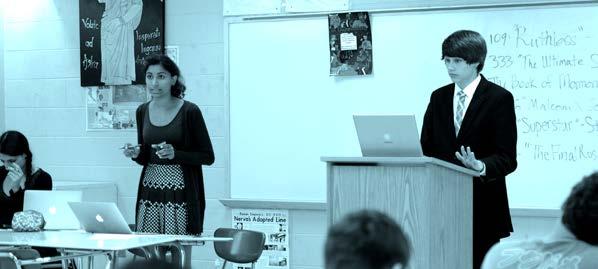
Finding new students each year is a key part of team management, and the best recruitment will take multiple forms:
• Visits to classes online or in person to give a spiel about the team.
• Recruitment help from other teachers and students.
• A presence around the school with posters featuring your students or NSDA alums, in school announcements, through locker signs for tournaments, and at activities fairs or open houses.
• An online presence through a website, social media, performance videos, and more.
For your full guide to recruitment including templates, videos, sample informational meeting outlines, and more, visit our website. www.speechanddebate.org/team-recruitment-strategies
Just getting started with speech and debate or expanding to a new event? Interested in learning more about recruiting and mentoring a diverse team? Our free, self-paced NSDA Learn courses have the information you need from the experts you trust. Learn the ins and outs of coaching new events, including rules, norms, and practice tips. Explore new ways to attract and serve students with disabilities, African American/Black students, and LGBTQ+ students. www.speechanddebate.org/learn
Grab-and-go lesson plans are at your fingertips! Our Start Here series has classroom-ready lessons for Public Speaking, Public Forum, Lincoln-Douglas, and Policy Debate. Use them in the classroom, or skip the hook and closure activities for time and use them afterschool. Find an abbreviated version of a lesson plan at right! www.speechanddebate.org/start-here
Annie Reisener serves as Membership Manager at the NSDA.
by Annie Reisener
5-10 minutes
HOOK
Warm Up – using the practice debate resolution from previous lessons, have students list potential impacts that their plans could solve.
f Common impacts include:
• Global Warming
• Economy War with a specific country United States hegemony (global leadership)
Next, have the students list some disadvantages they might run on the negative against these plans. Then, ask students how they might argue that one impact or disadvantage is more important than another. This sets the foundation for the formal impact calculus they will do later.
30-40 minutes
BODY
Take students through the Impact Calculus PowerPoint which includes lecture notes and activities.
5 minutes
CLOSURE
Collect students’ notecards with their advantage and disadvantage for the tournament. You may use the notecards to select seeds for the bracket or as an assessment tool. To assess these impacts, make sure students are told to include all of the “big three” on their notecards, and then assess the inclusion of all three: magnitude, timeframe, and probability.
DAY TWO +
HOOK
5 minutes
Begin the day(s) with a reminder of the rules for the bracket tournament, and get into the tournament as soon as possible so students have as much time as possible!
LESSON 10: ImPact caLcuLuS BODY
CLOSURE
START HERE: TEACHINGPOLICY DEBATE
30-40 minutes
Starting on Day Two and lasting as many days as needed, the students will compete in an “impact calculus tournament” using their advantages and disadvantages that they selected during day one. Have students give short (30-seconds to one-minute) speeches comparing their impact to their opponents’ impact, and either have the class vote on a winner or make a decision on your own, depending on preference. Tips for assessing these debates are included below.
5 minutes
At the end of each day of the tournament, give students a brief recap of the day and discuss some strategies for improving their impact calculus moving forward (either in the next day of the tournament or in their future debates, depending on the time you have). For assessment, take notes during tournament debates on how well students address the big three (magnitude, probability, timeframe) and if students include “turns the case” arguments in situations where they are relevant. Generally, “turns the case” arguments should be considered extra at this point in students’ development. If they understand the concept well enough to execute it, that’s amazing! But it’s okay if they don’t get it just yet, it’s a very complex argumentative approach.
TOPIC:
In this lesson, students will use the skills they’ve learned in the previous lessons to weigh the benefits (advantages) of the affirmative against the harms (disadvantages) presented by the negative in a process called “impact calculus” or “risk analysis.”
With multiple impacts in the 1AC and multiple disadvantages in the 1NC, how do debaters convince a judge that their impacts are most important?
1. Students will examine the importance of impacts in a debate round.
2 . Students will compare their impacts to those of their opponents using specific metrics.
3 . Students will communicate the importance of their impact versus that of their opponent.
MATERIALS:
• Notecards
RESOURCES:
• Impact Calculus PowerPoint
More often than not, the final speeches in a debate round come down to a simple question: does the plan do more good or more harm? The affirmative wants to convince the judge that the plan solves impacts with no negative outcomes, while the negative wants to convince the judge that the plan doesn’t solve anything and has a number of negative side effects. But what if the judge believes there are both positive AND negative impacts of passing the plan? How should they evaluate the round then?
The answer is impact calculus . Impact calculus is the process by which debaters argue which impacts are most important in the round, and it is arguably the single most important skill for winning debate rounds, so it’s definitely important for students to understand!
www.speechanddebate.org/start-here
Thank you for offering your thoughts!
Last May, the NSDA conducted a coach membership assessment, the results of which will inform membership offerings and more. This survey, last conducted in May 2019, gives members a meaningful opportunity to express their preferences and satisfaction as well as influence the direction of our organization.
Overview
The survey used is designed, based on metrics common to membership associations, to help the NSDA staff and Board of Directors understand which benefits and programs NSDA members value
and how well they believe the NSDA is doing in delivering those experiences.
The survey was emailed to 5,400 eligible coach members and received 810 complete responses, 603 of whom were high school advisors, 35 of whom were middle
school advisors, and the remainder of which were coaches but not advisors. The results were analyzed and presented to the NSDA by an independent third party.
The information provided here is based on the advisor responses to the survey. Results are specific to the high school survey unless otherwise indicated.
Demographic participation (fig. 1) was spread across regions. Members in the Pacific, South, and Southwest regions reported overall higher ratings than the organization’s average.
by Amy Seidelman
Slightly more than half of the high school respondents were from schools with more than 1,060 students, with 16% being from schools with fewer than 464 students (fig. 2). The 2019 and 2021 surveys both show very little correlation between school size and a member’s likelihood to renew or recommend the NSDA.
Suburban and city schools each counted for about a quarter of high school respondents, with rural and town schools being closer to 15% of the survey respondents (fig. 3).
* Size of region is representative of that region’s share of the NSDA’s total enrollment.
GREAT PLAINS: IA, KS, MO, ND, SD
MIDWEST: IL, IN, MI, MN,OH, WI
MOUNTAIN WEST: CO, ID, MT, NV, UT, WY
NEW ENGLAND: CT, DC, DE, MA, MD, ME, NH, NJ, NY, PA, RI, VA, VT
PACIFIC: AK, CA, HI, OR, WA
SOUTH: AL, AR, GA, FL, KY, LA, MS, NC, SC, TN, WV
SOUTHWEST: AZ, NM, OK, TX
OTHER:
NFL China District, non-districted schools, and other international schools FIG. 1
3 – HIGH SCHOOL SETTING DEMOGRAPHICS
* Null responses were those where NCES data did not return a setting result.
Respondents also tended to be from larger teams, with nearly a third of respondents maintaining programs with between 17 and 36 active member students (fig. 4).
More than half of respondents have been coaching for at least 10 years (fig. 5). As the categories for coach tenure shrink in size, the number of advisors that fit each category likewise shrinks.
The primary objectives of the survey are to:
X Understand why major segments of members belong and how loyal they feel;
X Determine which member benefits are being underutilized; and
X Measure the performance of the NSDA’s services and programs.
The survey asked respondents how likely they were to recommend the NSDA. 84.4% of respondents report being extremely or very likely to recommend, which puts the NSDA just below the typical association benchmark of 85% to 95%.
The survey also asked respondents how likely they were to renew. 91.5% of respondents were extremely or very likely to renew, which is within the benchmark for associations.
In this assessment, members are classified as either loyal, neutral, or vulnerable based on three attributes:
X A member’s likelihood to recommend Association membership to others;
X A member’s likelihood to renew their Association membership; and
X How valuable the member perceives membership in the Association to be.
With a 66.8% loyal rating and a 9.1% vulnerable rating for high school advisors (fig. 6), the loyalty profile for NSDA members is in the range of a typical membership association (i.e., the percentage of loyal members is over 50% and the percentage of vulnerable members is below 15%). In our survey, Title I eligible schools (which make up about 41% of the responses) are slightly more likely to be considered loyal (68.1%).
Loyalty does vary somewhat by coach tenure, with coaches having 1-2 years experience (8% of the respondents) showing the highest loyalty, and those coaching 6-10 years (19% of the respondents) showing the lowest loyalty (fig. 7).
Although the NSDA’s loyalty rating is meeting an association benchmark, we strive to achieve more than 70% loyalty, which would mean more than 70% of advisor respondents indicate they are very or extremely likely to renew and to recommend the NSDA, and that they rate the value of membership as excellent or very good.
There are two components of membership value: performance and impact or importance. Performance is how satisfactorily an item is meeting the needs and desires of a member. Impact is how significant or relevant current performance is on the overall value a member places on membership. This year’s survey analysis compared 2021 benefit performance ratings to 2019 ratings (fig. 8 on facing page)
Although knowing which benefits rate highest is useful information on its own, this survey also compares the performance rating of each of the benefits against the overall rating of value each respondent provided finding in NSDA membership. In essence, this tells us whether knowing a respondent’s view on any one attribute is predictive of knowing the performance of the Association overall.
So, while Honor Society membership (points and recognition) and access to Districts and Nationals are the highest
performing benefits, this survey (like the 2019 survey) also demonstrates that any improvement to Tabroom.com, community information (including publications), and instructional resources could directly improve the NSDA’s overall membership value for these respondents, as the ratings members provided on those items correlate most closely with their overall rating of membership value (fig. 9). The survey also asked members to rate the importance of benefits within the Honor Society aspect of membership specifically. Advisors were asked to evaluate these benefits both from the perspective of students and schools. For students, earning new degrees was followed closely by receiving a certificate and degree
seals as the most valuable Honor Society benefits. Benefits to schools were generally considered far less important than benefits to students, but a majority of all advisors reported that student recognition, rankings, and charter status were all important to schools. Not surprisingly, loyal members rated all aspects of Honor Society benefits higher than neutral or vulnerable members (fig. 10 and fig. 11)
Though only 35 middle school advisors completed the survey, spread fairly evenly across coaching tenures (fig. 12 on the following page), it is worth noting that there was a higher percentage of vulnerable respondents at the middle school level—28.6% for the
information (e.g. member publications, social media, etc.)
NSDA versus less than 15% for an average organization (fig. 13). Membership benefit performance was lower across the board for this group, and access to Districts and Nationals was identified as the attribute that was predictive of overall value.
The main focus of the 2021 survey, other than gauging loyalty, was to collect feedback regarding competitive and instructional resources. Several resource-related questions asked for additional comments, which the NSDA membership team has synthesized and mined for more details to help increase the value of membership benefits.
The primary resource pain point is finding resources and knowing what’s the best fit. This feedback led us to create four new resource hubs with the best content in each category.
The Coaching Debate hub and Coaching Speech hub feature our most popular coaching and teaching resources, like courses to explore event rules and coaching strategies, grab-and-go
lesson plans, sample performances and explanations, textbooks, plus the latest videos, current topic and practice tools, and more.
The Team Management hub includes resources for running your team including sample handbooks, tips for managing your roster, guides to tournament hosting and attendance, our student recruitment guide, judge training, event overviews, and professional development tools.
The Self-Guided Learning for Students hub features content students can use independently to build their skills, such as practice drills, videos from student experts, final round performances, and topic guides, dockets, questions, and more. These web pages are accessible from the
Resources tab on the navigation menu of our website, www. speechanddebate.org.
This year, we’ll also work toward personalizing your resource experience more than ever. Based on your feedback, we’ve added a new option to member accounts where you can check the box for the event(s) you’d like to be notified about when new resources are released. Please take a moment to fill in your preferences at www. speechanddebate.org/ account
We thank all participants for taking valuable time in May to share thoughts with us, both to reiterate what current aspects of the NSDA are most important to sustain and which differences or changes might help the organization support coaches and students better in the years ahead.
A new online platform from the NSDA
Are you exploring how to provide online speech and debate in a socially distanced environment?
NSDA Campus is an online platform offering team practice space and tournament hosting space at a low cost.
Host tournaments using either Tabroom.com or SpeechWire.com
OUR PRIORITIES:
• Participant security
• Low-cost option
• Simple, integrated user experience
PER ROOM, PER DAY
“We were going to have to raise our prices substantially to use a different platform, but we were actually able to lower our prices and make the tournament more accessible to students because of the affordability of NSDA Campus... We were so lucky, and NSDA Campus was SPECTACULAR the whole weekend for us.”
To date, NSDA Campus has provided more than 100,000 rooms!


www.speechanddebate.org/nsda-campus
by Karina Samuel
During the first week of August, coaches, educators, and community members assembled online at the National Speech & Debate Conference to learn from experts, connect with peers, and grow as professionals. The conference included several coaches’ caucuses, professional development sessions, keynote addresses led by prominent figures in the community, and town hall style meetings that allowed attendees to deliberate various topics.

c6t7e3nw.

This year’s conference was offered free of charge with more than 200 participants attending virtually. Sessions were rooted in advocating for more equitable and inclusive speech and debate communities.
Three communitywide town hall sessions gave participants the opportunity to discuss the ways in which leaders in the speech and debate space can foster a safer and more just environment.
The first two town halls centered on discussions about judge recruitment and training as well as program growth and support. Many attendees agreed that lack of judge training is a barrier to equity in speech and debate, and that more trained judges are necessary for the health of programs nationwide.
One coach from Nevada argued that larger national circuit programs are able to recruit judges more easily because they can afford to pay for their expertise. Meanwhile, smaller schools that primarily compete in local circuits have trouble retaining judges across multiple tournaments and are forced to re-train judges throughout the season. These sentiments were corroborated by other conference participants. One Florida coach suggested programs that rely on volunteers to judge can face issues when parents cannot give up back-to-back weekend work shifts to adjudicate tournaments. Several attendees believed that virtual judge training opportunities, organized scheduling, and
None of us has the capacity to do the work that we do without seeing, understanding, and affirming ourselves. We have to see ourselves in order to care for others. ” — Denise Young Smith
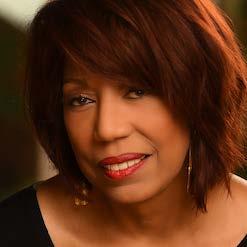

standardized judging metrics could help not only ease volunteers through the process but also increase tournament accessibility for smaller programs.
The third and final town hall of the conference examined the future of online competition. Each participant in this session was asked to describe their school’s COVID-19 policy and explain both their positive and negative experiences with virtual tournaments.
Many attendees believed that online speech and debate opportunities should continue into the future, even if the potency of the pandemic declines.
Another coach from California believed that online tournaments give students who are traditionally excluded from high-profile competitions a chance to
compete on the finest stages. For the first time last year, students were able to meet people from across the country at national competitions, something that is typically exclusive to students who participate in the national circuit.
Other attendees observed that, while online competition increased accessibility for some, many students were ill-equipped for some of its challenges.
One New Jersey coach explained that many competitors had home situations that were nonconducive to virtual tournaments. Students competing in the Urban Debate League consistently dealt with connectivity issues and often could not find a safe and quiet place to perform their best.
Despite some varying opinions, most conference
attendees agreed that, while it is a priority to return to primarily in-person competition, supplemental virtual activities such as the NSDA’s Springboard Series should be offered to students as well.
The NSDA is mining post-conference survey responses for additional feedback to further advance these important conversations and determine next steps.
The 2021 National Speech & Debate Conference gave attendees a place to learn new information and strategies they can utilize with their teams, in their classrooms, and in their communities at large. While many obstacles remain in achieving equity in the speech and debate space, the discussions included noteworthy signs of progress.

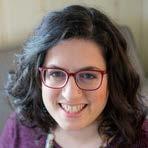
Three engaging keynote speakers helped set the tone each day of the NSDA’s online conference held in early August. For several memorable takeaways from these sessions, check out pages 33-34.

Preparatory
in Florida and currently serves as a publication intern at the NSDA.
Check out the following pages for more insights from the 2021 conference!
by Tova Hettinger
Alex Shevrin Venet is an educator, author, and professional development facilitator committed to supporting educators as they create safe, traumainformed spaces for students. Recognizing that trauma can be an overwhelming issue to navigate, Alex provides a lens through which we, as individuals, can work to make an impact.
“Trauma can be both an individual and/or collective response to life-threatening events, harmful conditions, or prolonged dangerous or stressful environments.”
Alex emphasizes the importance of viewing trauma as a flexible construct rather than an absolute. Trauma is a part of the human experience, and its impacts will vary greatly from person to person. It is important to remember that trauma is more about someone’s response to an event rather than the event itself. Alex encourages us to move
away from the idea of identifying which students have experienced trauma and which students have not. Instead, we can work to evaluate how team culture can be reshaped to support both students who have or have not experienced trauma.
Providing two constructs for how coaches can begin this work, Alex creates space for us to either “do nothing” or “do everything.”
Healthy relationships with supportive adults are important protective factors for students. As a coach, you likely already are praising student strengths, maintaining high expectations, and fostering a sense of community on your team. Keep doing what you are doing to make your team space a safe place to be.
Remember that you are one piece of an even greater puzzle that supports the overall growth and well-being
Alex Shevrin Venet is the author of Equity-Centered Trauma-Informed Education, available from W. W. Norton.
of students. A person’s trauma story is bigger than you.
Begin seeing trauma as a human experience rather than something that needs to be treated or fixed.
Make school and competitive spaces a “soft place” for students to be. Remember to be human-centered as you create these spaces. Picture one of the hardest days of your life. What did you need that day? How did you want to be supported? Can any of those things be infused into your role as a coach?
Reflect on how trauma is present in your school and consider potential points of intervention to disrupt it. Consider ways to empower students to become disrupters of trauma as well.
With everything that educators are tasked with in a year, Alex provides a reminder that although you may not be directly
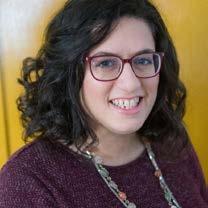
responsible for the existence of injustice, you do have the power to make a positive impact within your position. Whether you choose to do nothing or everything, your daily care and investment in students speaks volumes.
Interested in learning more ways you can implement traumainformed practices within your school?
Check out a recording of the professional development session led by Alex Shevrin Venet: tinyurl.com/c6t7e3nw
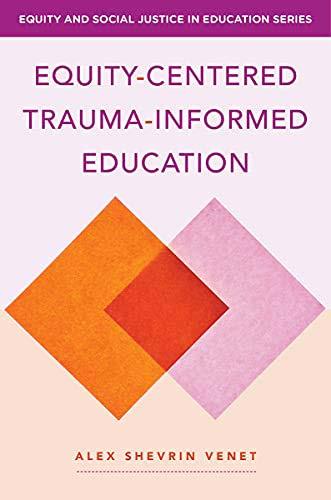
Tova Hettinger serves as Grants and Advocacy Coordinator for the NSDA.
by Ellie Konfrst
As part of the 2021 National Speech & Debate Conference held online this summer, the NSDA hosted communityled discussions about trigger warnings and content warnings in speech and debate.
Content and trigger warnings are tags that students can give before the start of their speech to alert the audience there may be something potentially retraumatizing or triggering in their speech or performance.
Since content and trigger warnings have recently developed as informal norms but are not required under NSDA rules, there is ongoing conversation about their purpose, their efficacy for creating safe spaces, and whether there is risk that they could be exploited for competitive advantage.
Given these concerns, the NSDA hosted exploratory sessions to begin to unpack the role of these warnings in speech and debate activities. While the NSDA provided the platform and space for these conversations, the moderators and participants of both sessions were exclusively community members.
Recognizing that different considerations are necessary in discussing content and trigger warnings in speech
and debate, two different sessions were held—one focused on debate and one geared toward speech. While different events prompted different concerns, coaches in both sessions emphasized there is a careful balance that must be struck between ensuring students feel safe in rounds and allowing for the kind of open discussion of controversial topics that is fundamental to speech and debate.
Most coaches agreed that striking that balance is possible, but requires deciding what the purpose of content and trigger warnings is, and what is expected of students, judges, and coaches when someone becomes uncomfortable in a round. The conversations began to diverge here, with debate coaches having different answers to these questions than speech coaches.
One unique concern of debate coaches was the potential for exploitation of content and trigger warnings to shut down uncomfortable conversations, or gain a competitive advantage. Coaches remarked that in many debate events, if someone in a round responds negatively to a trigger warning, it is expected
that students no longer read triggering content, creating the expectation that students have multiple arguments prepared, and potentially making it more difficult for marginalized students to talk about their experiences.
This was less of a concern in the speech discussion, as in speech events, coaches suggested creating an “opendoor policy,” where students can excuse themselves from watching triggering content in other students’ speeches. However, speech coaches were also concerned about the potential for content and trigger warnings to discourage students from tackling important but triggering topics.
Ultimately, these sessions were useful in helping coaches understand just how much variety there is across different circuits and events with regard to content and trigger warnings. The dialogue fundamentally demonstrated how the goals and concerns of most coaches are closely aligned.
It is clear that the speech and debate community must have many more discussions about content and trigger warnings. These sessions provided an excellent starting point and prove that the community is ready for those difficult conversations.



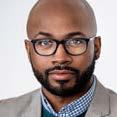
(top to bottom) The debate discussion was facilitated by Benjamin Hagwood (Vancouver) and Alyssa Fiebrantz (Florida), while the speech session was led by Justin Kurup (California) and Daniel Hodges (Minnesota).

Ellie Konfrst is a junior Mulva Scholar at the University of Notre Dame studying Political Science and currently serves as a marketing intern at the NSDA.
by Lillian Adeyemi
It goes without saying that 2020 was a year that none of us want to relive, but if there’s one profession that pivoted without a shutdown in the face of the unknown, it was education.
As we welcome our students back into our classrooms and competitive spaces this year, it is important to know our students will be arriving with not only their personal adverse childhood experiences (ACES) but also the impact and stressors caused by the pandemic.
Anxiety can show itself in many different forms, and it is important to remember that all behavior is a form of communication.
When people experience stress, the prefrontal cortex (also known as the thinking portion of our brain) often shuts down and our amygdala kicks into overdrive. This portion of our brain is typically driven by our emotions and can react in three ways: fight, flight, or freeze.
Fight reaction in students can be anything from verbal to physical aggression. Flight reaction can include skipping class or distracting the class with humor. Freeze reaction can look like whining, being clingy, or even zoning out in class.
Dr. Ebersöh (2012) added one more reaction to anxiety, the flock reaction, whereby
individuals who have shared experiences can have a positive adaptation to one another and essentially flock to one another. Many of us grew up knowing the old adage, “Birds of a feather flock together.” This is the reaction Dr. Ebersöhn says students also can display when anxiety overtakes their thought process.
As educators, we all want our students to flock to us, or at least help them find a safe space, when the world feels as if it’s closing in on them. One thing that causes the flock reaction is ensuring
your students feel heard, seen, and/or appreciated.
Relationship building is one way to help students who may be experiencing bouts of anxiety when the school year begins. As a coach and classroom teacher last season, it was imperative that I created a safe space in my classroom— no matter the students’ race, sex, or gender. Below are some ways you can build those positive relationships, found in the blog “Mr. Gillespie’s Office” (infographic by Julie Woodward).
During relationship building you are able to ease the many

irrational thoughts that sometimes anxiety can bring. Essentially taking students off the worry train track to the truth train track many times can help them go from fear to facts (Chansky, 2014).
One thing is certain, every person is different, just like our fingerprints. Building relationships and implementing strategies each and every day in your classroom and competition spaces can help ease your students’ bouts with anxiety brought on by the ever changing world around them.
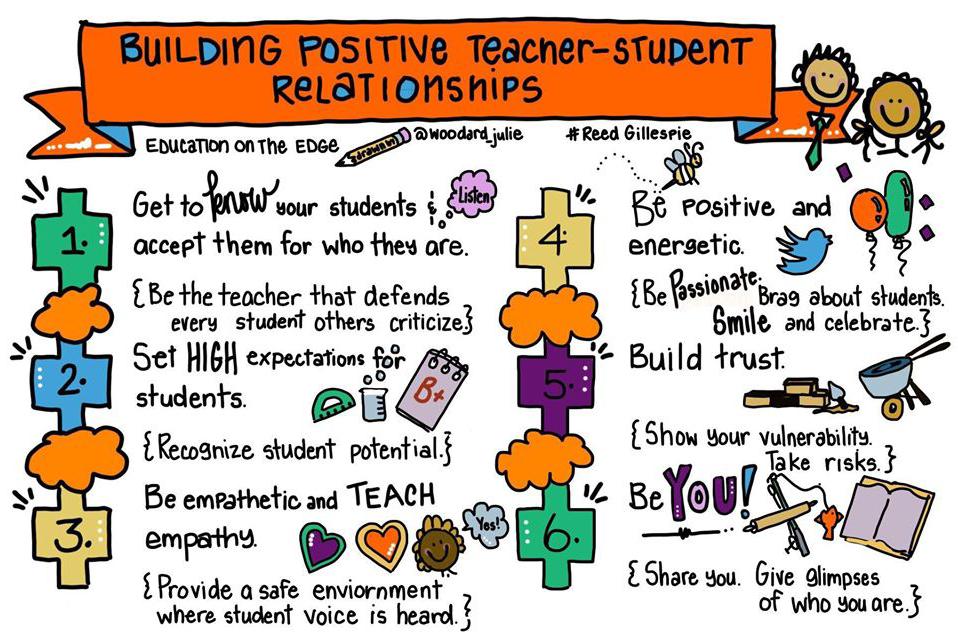

Chansky, T. (2014). Freeing Your Child From Anxiety (2nd ed.). Harmony Books.
Ebersöhn, L. (2012). Adding ‘flock’ to ‘fight and flight’: A honeycomb of resilience where supply of relationships meets demand for support. Journal of Psychology in Africa, 22(1), 29-42. https://doi.org/ 10.1080/14330237.2012.10874518.
Gillespie, R., et al. (2017, March 7). Building Relationships: Practical Ideas to Implement in Classrooms [web log]. https://reedgillespie.blogspot. com/search?q=building+positive+ student+teacher+relationships.
Rimm-Kaufman, S., & Sandilos, L. (2010). Improving students’ relationships with teachers to provide ESSENTIAL supports for learning. PsycEXTRA Dataset. https://doi.org/10.1037/ e501992017-001.
Schab, L. M. (2008). The anxiety workbook for teens: Activities to help you deal with anxiety & worry. New Harbinger Publications.
Understanding your students’ experiences. (n.d.). https://www. texasproject.
Lillian Adeyemi is a Texas certified school counselor, two-diamond coach, and Seven Lakes High School Director of Forensics.
Teachers, mentors, coaches they give an incredible amount of energy to an incredible number of people every single day. ”
— Denise Young Smith
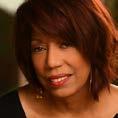
You create these wonderful connected places where students feel like they can show up and lean on each other and get that support. ”
— Alex Shevrin Venet
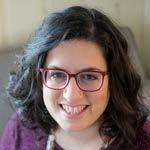
Many of our alumni go on to be teachers, they go on to be public servants or activists... they go on to make choices that a lot of us were not in a position to make before we got the mentorship
, the critical thinking skills, the networking, and the self-confidence that we did [through speech and debate].” — Elijah Smith

It’s not about whether or not someone else won; it’s about what did you get out of the time that you spent in debate.” — Elijah Smith
There’s so much trauma. How are we going to deal with all the pandemic trauma coming back into school? We need to be trauma informed about all this stuff. And as individual coaches and educators, we can kind of feel like, ‘Huh, that’s a lot.’” — Alex Shevrin Venet
Check out additional topics in our archived session recordings!
Hosting Equitable Tournaments and Implementing Equity Panels
Springboard for Opportunities: Using the NSDA’s Expanded Springboard Free-Tournament Series
Topic Writing and Decision Making through an Equity Lens
Keynote: Considering All Options—Rethinking Failure in Diversity, Equity, and Inclusion
Keynote: Transforming Our Teams with Trauma-Informed Education
If you are in a role where you have a platform upon which your stories can be told, that is a place of wonder and privilege. Where there are students’ minds and hearts seeking and craving those stories, they absolutely matter.” — Denise Young Smith
compiled by Juliette Reyes (’20), marketing communications intern at the NSDA
Applying Trauma-Informed Practices to Your Speech and Debate Team
Reunited & It Feels So Good: Navigating Students with Anxiety in the Classroom and Competitive Space

Scan the QR code or visit tinyurl.com/ c6t7e3nw.
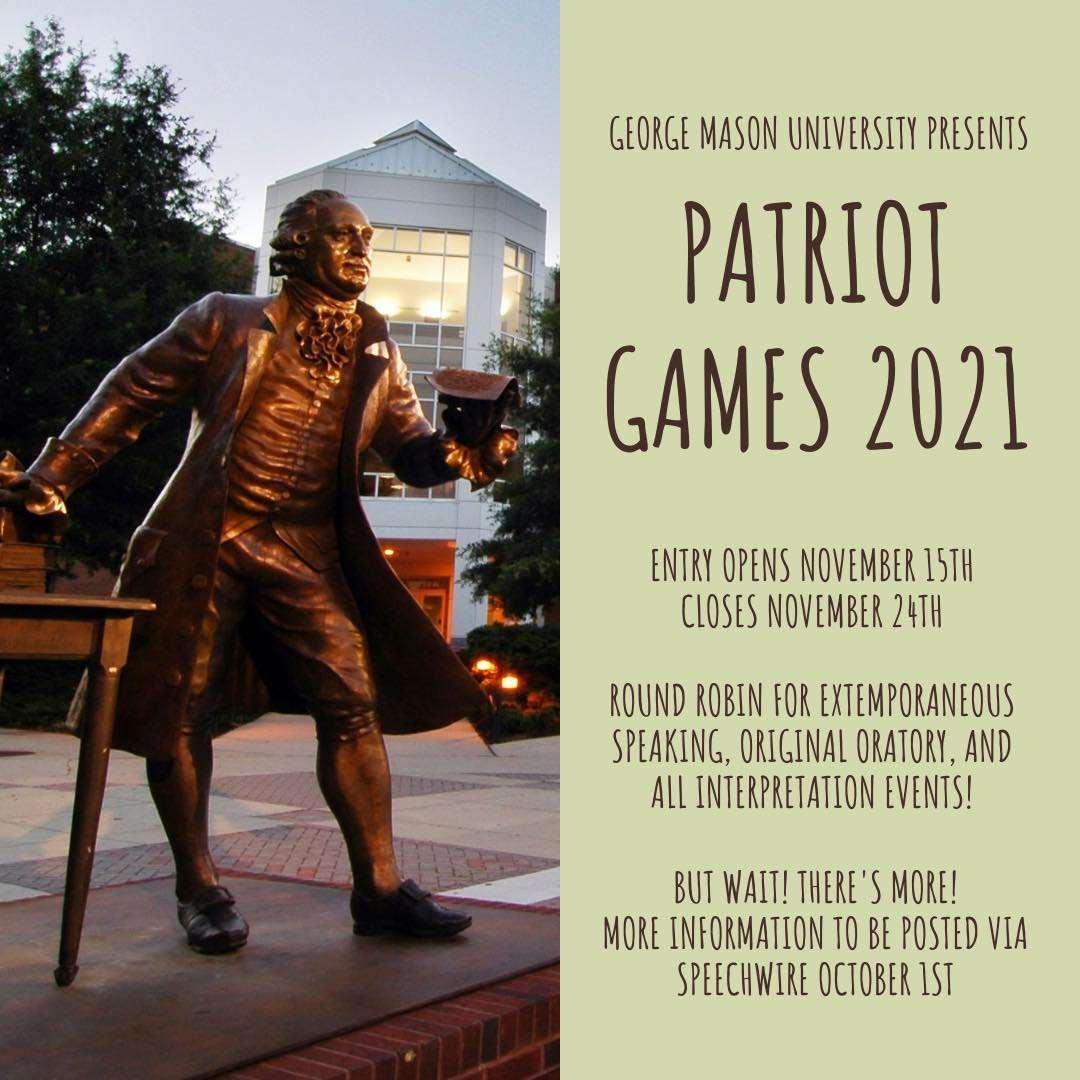

by Grace Rogers
s a new year of speech and debate begins, we’re excited to welcome a new appointed member to the NSDA Board of Directors!
Anoop Mishra is vice president and regional executive at the Birmingham Branch of the Federal Reserve Bank of Atlanta. He is responsible for the Atlanta Fed’s Regional Economic Information Network (REIN) for the state of Alabama, in which he collects and synthesizes economic intelligence from business and community leaders throughout the state to support monetary policymaking. Anoop oversees the Birmingham Branch’s board of directors, the District’s Agriculture Advisory Council, and leads the Atlanta Fed’s community and economic development outreach efforts in Alabama.
Before joining the Bank, Anoop owned a business consulting firm and was
previously the chief executive officer of WorkforceQA, a national employment screening and compliance provider. He served as the chief operating officer for EDPM for 12 years prior to its acquisition by WorkforceQA. While there, he served on the Atlanta Fed’s Human Capital Advisory Council.
Anoop also worked for Accenture in Atlanta in its Financial Services / Strategy practice.
Anoop received a B.A. in political science from Birmingham-Southern College and an M.B.A. from the University of Pennsylvania’s Wharton School. He is active in the Birmingham community, serving on the boards of the Alabama Economics Club, American Cancer Society, Opportunity Alabama, and Workshops,
Inc. He is a member of Birmingham’s Downtown Kiwanis Club, an alumnus of Leadership Birmingham and member of Leadership Alabama. Anoop and his wife, Manisha, live in Homewood with their two children, Annikah and Adesh.
Anoop debated at Homewood High School in Birmingham, Alabama, from 1985-1989. He competed mainly in Lincoln-Douglas Debate, but also participated in many other events. He was the national champion in Lincoln-Douglas in 1988, and continued to teach and coach LD for several years after.
Check out a Q&A with Anoop Mishra below!
Q: Why did you decide to join the NSDA Board?
A: Debate has had a profound impact on my life. The opportunity to serve on the NSDA Board
is a small way that I may be able to give back to an activity that has given me so much. I’m looking forward to learning about how speech and debate has changed over the years and reconnecting with the debate community, including with several coaches and board members that I’ve known for so long.
Q: Are there any current initiatives or conversations that you’re especially passionate about?
A: I’ve really been amazed by and excited about the focus on Diversity and Inclusion in speech and debate. I grew up in a family with very limited resources, but we were blessed to have an incredibly supportive school system (and dedicated coach) who viewed debate as a critical part of the educational experience and funded it accordingly. Without this
support, there is no way I could have benefited as much as I did. I am interested in contributing to efforts to make engagement be less a “stroke of luck” and more an intentional strategy.
Q: What is your favorite thing about speech and debate?
A: At the time, I loved the competition and friendships. In retrospect, the friendships have lasted much longer than I could have anticipated. There are many people I first met at debate tournaments from across the country who have been lifelong friends. My debate coach, Patricia Bailey, was like a second mom during my debate career and one of the great rewards was being able to evolve a close friendship with her after graduation. I also realize that the skills of critical thinking, argumentation, and persuasive speaking learned in debate have been core to my professional and personal life in the last 30 years.
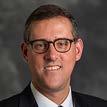
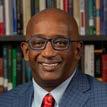
Dr. Alan Coverstone is a Senior Program Officer on the K12 team at the Bill & Melinda Gates Foundation. He got his education and career start as a debater and coach in Nashville, where he lived for 24 years before moving to Northern Virginia in 2019.
Dr. Mike Edmonds is the Senior Vice President and Chief of Staff at Colorado College, where he also teaches Business Communication in the Economics and Business Department. He is passionate about young people, working closely with many student groups to help inspire and develop the next generation, and has served Colorado College and the surrounding community of Colorado Springs for 30 years.

Sara Gibson is the co-founder and CEO of 20 Degrees, a firm dedicated to unlocking revenue and capital for social innovation. Sara pioneers new approaches to resource cultivation and is passionate about making alternative revenue accessible to historically marginalized audiences. Sara’s 20-year career spans service in the corporate and nonprofit sectors, having worked at the Advisory Board Company (later Corporate Executive Board) and award-winning service organizations, including Miriam’s Kitchen, AppleTree Institute for Education Innovation, Sitar Arts Center, and Samaritan Ministry of Greater Washington, as well as L’Ecole Koenig in Paris.
Q: What is your favorite thing about speech and debate?
Coverstone: Speech and debate teaches listening, empathy, understanding, dialogue, and individual participation in building our communities. Creating opportunities for students to develop and use their voice is absolutely among the most important skills that our education system can and should develop, and every student should have the opportunity to find and use their voice to help build our future communities together.
Edmonds: Speech and debate is an activity that anyone can have fun with. However, we don’t want to forget that this is also an activity of critical thinking that requires both our minds and hearts to be engaged. Speech and debate requires one to think critically, to think logically, and to think with reason. But it only makes sense if one understands with their heart as well.
Gibson: Speech and debate was my window into a world beyond my small town. I love where I come from, and I’m grateful for all the ways that Chesterton High School shaped me, but I ached to talk about and think about issues beyond my small community. I think debate unlocked my curiosity and assured me I wasn’t alone in thinking about things like climate change, homelessness, and healthcare. It is no accident that I am still in the business of ideas and real solutions.
Specialist

by Elgin Woody IV
In Season One, Episode 17 of the awardwinning television series SpongeBob SquarePants, SpongeBob ends up out of place and lost in a city called Rock Bottom. No one around him looks like him, they speak an entirely different language, and he immediately finds himself feeling adrift and begins to panic.
Of course, this kind of experience is not a unique one; similar storylines exist throughout television, movies, and literature, dating back hundreds of years. And that is with good reason—the experience of feeling alone and out of place is one of the most hauntingly stressful situations in the human experience.
That experience can even creep up on coaches new to speech and debate, especially those whose identities are not shared by the coaches in their community.
Deep in the heart of the Sunflower State this experience became the
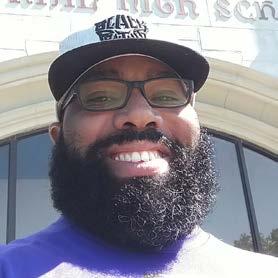
reality for Justin Cartwright, the head coach of speech and debate at Field Kindley Memorial High School in Coffeeville, Kansas.
In 2017, when Cartwright became the head coach and started taking his students to tournaments, it did not take much deduction to realize the obvious.
“Black kids in speech and debate were few and far between when I was a competitor, and in coaching, it’s the same thing. There are still not a lot of coaches of color,” Cartwright says.
To be the only Black coach at tournaments is certainly a challenging situation. It can, in fact, feel precisely like SpongeBob SquarePants being lost in a random city called Rock Bottom. Without any other coaches around who have lived similar experiences, or “walked in our shoes” as Cartwright alludes to a famous quote from the book To Kill a Mockingbird, it can be frustrating.
Specifically, Cartwright recalls a situation in which a team of his students—two young Black men—were
debating against a team of two young white men in a round at a tournament. Cartwright elaborates that the white young men said, “If the judge votes for the other team, that’s racist and un-American, and the judge has an obligation to uphold American values.” Even further, after the round, that team told their coach it was Cartwright’s competitors who told the judge, “If you vote for them, that’s racist.”
It was a stressful and challenging situation, to say the least, Cartwright says. “How do I tell these two Black boys they did nothing wrong? I was sure to reaffirm that they are smart, capable, and that they are American.”
More broadly, he says, “Experiences like that make it difficult; students of color just want to compete without any kind of preconceptions or barriers to overcome. But situations like that make it hard to get kids motivated and keep them in the activity. We need to tell our students of color, ‘Don’t let the world tell you what you are and what you are not.’”
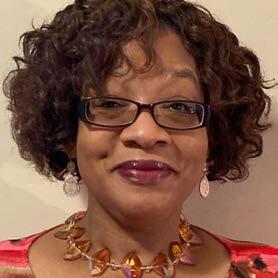
Cartwright competed in high school himself and speaks to a similar type of isolated experience as a competitor. Yet, he says he decided to get into coaching—as more coaches of color should—because “it’s about the students.”
He explains, “For Black coaches and students, it’s all about the experience. A lot of kids don’t know how to process those experiences. Many Black kids have only white teachers, and to have a Black teacher who maybe has similar interests and has gone through similar experiences gives students validity and mental resources to get through their high school years.”
Constantly navigating spaces like schools and speech and debate communities with no other coaches who share the same identity is exhausting. Cartwright, however, struck gold after a few tournaments, when he met Jamelle Brown, the head coach at Sumner Academy in Kansas City, Kansas.
“As a coach of color in spaces like that, you are
constantly searching and seeking to build a sense of community,” Cartwright says. “I met Jamelle early on into my time as a head coach. She reached out first, and we stay in contact frequently even today. A lot of her former students have even come to help judge for me.”
Brown says she connected automatically with Cartwright. “Justin and I met at the state conference for speech and debate that Kansas hosts. I had never met him before but spotted him immediately and gave him a hug. We shared each other’s stories about our time in the activity and coaching, and it was refreshing to see a Black man excited to do this activity.” She notes specifically that Cartwright was ready, well-prepared, excited, and energetic to take over the program at his school.
It is important, Brown says, for coaches to have mentors around them who understand their lived experiences.
“We are often ‘the only one’ in our building. If you’re a coach, you may not have other coaches or teachers who share your identity around you. Having a mentor is important for that. There are so many things you won’t learn taking courses,” Brown says. “Speech and debate is a lot of on the job learning; having someone who understands your struggles and frustrations both in and out of tab rooms is so important.”
Brown tells a story of an experience similar to that which Cartwright recalled—a situation in which a student of hers was told by a judge from a finals round, “Wow, this is really good, but I wonder if this would be as good if it wasn’t a Black piece.” Situations like these are hard pills for students to swallow, she says.
Experiences and struggles such as these are heart-wrenching and all too common. Nevertheless, Black coaches persist. Brown notes that more coaches of historically marginalized groups should step into mentorship roles with younger coaches, referring—perfectly— to the same To Kill a Mockingbird quote that Cartwright used earlier.
“There is an automatic ‘I’ve walked a mile in your shoes’ feeling. I personally know what it’s like to walk into a tabroom as the ‘only one.’ As a person of color, there are so many things you have to be constantly aware of, especially in Kansas. Being a Black speech coach gives another added level of connection.”
In a final note of reflection, Brown spoke directly to coaches who belong to historically marginalized groups. “Don’t give up,” she said. “There will be times when you want to give up— don’t. There will be times when you feel defeated and you feel like you don’t belong in this space, when other people feel like you don’t belong. Until you kick down that door and tell the world ‘I AM HERE,’ you are allowing that space to be only taken up by those who don’t look like you. Kicking that door down will allow others who look like you to occupy that space. Despite all the negative feelings you may feel, don’t give up.”
Justin Cartwright and Jamelle Brown remain close friends and colleagues to this day. Notably, they both regularly attend multiple NSDA Coaches’ Caucuses. In those spaces, they both seek to make the activity more inclusive and equitable so that fewer coaches experience the feeling of being lost in Rock Bottom, like SpongeBob SquarePants.
Elgin Woody IV serves as Membership and Diversity, Equity, and Inclusion Coordinator at the NSDA.
compiled by Lauren McCool
Members of the Kentucky District Committee chatted with us about what makes them click, insights into their mentoring program, and what they most look forward to as they prepare to host the National Tournament in 2022.
There is so much synergy between the leagues/associations in Kentucky. Can you explain how that works?
Rachel Page: There are five leagues in our area that represent the entire state—Kentucky High School Speech League (KHSSL), Kentucky Educational Speech and Drama Association (KESDA), Kentucky Catholic Forensic League (KCFL), Kentucky NSDA District (KNSDA), and
Wilson Wyatt Debate League (WWDL)—and we all realize we are stronger together. For example, WWDL has a trust/foundation, so they cover the membership fees for other organizations for their member schools. Our NSDA district has gained new schools solely based on this initiative. Each organization is responsible for a workshop at SPEAK, our professional learning conference in the fall. KNSDA is the Kentucky circuit tabroom administrator and provides
In Kentucky, we are committed to building a strong speech and debate community and increasing opportunities. We do that by working together and offering support that will keep new coaches in the activity.”
— Katy Cecil
tech support. KCFL has covered membership fees for new schools. KESDA provides unique and fun competition opportunities that the other leagues are unable to offer.
KHSSL provides a master schedule that includes the tournaments from the other four leagues.
We recognize that we aren’t competing for schools; each organization has something to offer the populace. Because we can pool resources to reach practically the same audience, that allows each league to focus on more unique aspects of their organization. For example, because mentoring has been absorbed by KHSSL, as KNSDA chair, I can focus more on communicating about opportunities and educational resources.
How has online competition had an impact upon your district over the last school year?
Rachel Page: Because our state has used Tabroom.com since its inception, and schools have been introduced to online balloting for the past few years at various tournaments around the state, it was fairly easy to transition.
I think online competition opened a new world of possibility, as very few of our schools go out and travel on the national circuit. Last year, I was able to “take” my kids to Pennsylvania, South Carolina, Texas, California, and Utah. This allowed them to see a new mix of perspectives and styles.
Steve Meadows: Schools have definitely taken a hit in recruiting, as many did not see their students in person until April last year, but the show went on. I also saw coaches being really supportive of each other. We are generally, anyway— Kentucky operates on a “Team Kentucky” mindset— but it seemed to increase this year with coaches judging more (with less tab help needed) and long, helpful ballots resulting.
Katy Cecil: I was thrilled to see the community step up and offer opportunities for students to compete online. I can’t imagine if they’d had to just sit out a year. We were one of the few activities that were essentially “business as usual” for the year, and that was awesome for our students.
Overall, our students adapted—as they always do. One of the things that I have ALWAYS said about speech and debate is it teaches you to roll with whatever comes your way. Adjust, adapt, overcome... that’s what we do week to week. We keep growing and changing and challenging and getting better. What more could you ask from a kid, a coach, a judge, a community?
Tell us about your mentoring program! How is it organized? What could other districts who are
interested in doing the same kind of thing “borrow” from your work?
Rachel Page: We have a somewhat unique situation in that our district is our entire state. For the longest time, being on the District Committee just meant that you helped run the district tournament.
Our mentoring program started many years ago when our committee began to do more outreach. We would start out with the schools that were new NSDA chapters and pair them with an active charter school to help them learn the ropes of the NSDA. We quickly learned there weren’t really brand new schools joining, just schools that had been active in Kentucky for a while that had finally been persuaded to join the league. There wasn’t much “mentoring” that was really necessary.
What we needed to do was reach the truly new coaches/schools in our state. If you don’t come into this activity with prior experience, it can be extremely overwhelming. We needed to help those coaches navigate the Kentucky speech and debate world. Maybe they wouldn’t be ready to join the NSDA right away, but if we worked on coach retention, then they might join in future years. So I worked with the KHSSL director to identify new coaches who had
registered for the league. I then paired them with NSDA member coaches.
Katy Cecil: When I have a mentee, I often share my library with them as well. I am of the firm belief that there is enough success to go around in our activity, and we all become BETTER when we lift each other up. In Kentucky, we are committed to building a strong speech and debate community and increasing opportunities. We do that by working
together and offering support that will keep new coaches in the activity.
Kentucky is the host for the 2022 National Tournament!
As a committee, what are you most excited about?
Rachel Page: I am excited to just experience that kind of energy again— students anticipating postings, coaches from

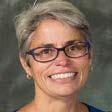



Rachel Page , Chair
Larry A. Ryle High School Union, KY
Katy Cecil LaRue County High School Hodgenville, KY
Neomia Hagans Flores
Paul Laurence Dunbar High School Lexington, KY
Steve Meadows
Danville High School
Danville, KY
Michael Robinson
Murray High School Murray, KY
different states catching up, the feeling you get when there are thousands of other people with the same passion who are converging together for one pivotal experience. To help facilitate that is a great honor.
Katy Cecil: I am very excited to have people from all over the country come to see our beautiful state. I think sometimes Kentuckians get a bad rap, because we aren’t quite Northern or Midwestern, but we really aren’t that Southern, either. We are just kind of our own thing, and in my humble opinion, we are “kind of a big deal.”
Louisville in particular is the home of Slugger Baseball Bats—nearly every player in the MLB uses bats that are produced in Louisville. We are the home of the Kentucky Derby— the most exciting two minutes in sports! AND, if that weren’t enough, we are the home of Muhammad Ali—the G.O.A.T.!! Kentucky has also produced a lot of other greats, and I can’t wait to host our speech and debate friends and colleagues from all over the country in one of the friendliest and most interesting cities in the nation!
— Rachel Page, Kentucky District Chair
Try to partner with other organizations in your state like we did to maximize your impact.
Decide how you are going to prioritize your matches. In Kentucky, we look at proximity (same county/region), division (speech, debate, or both), and level (middle or high school).
Make sure to be clear to your volunteer mentors about their responsibilities. They should be reaching out to the mentees and not just waiting for questions.
Personally send out letters/emails to your matches that introduce the match and give contact information.
Schedule check-ins halfway through the season and send out surveys when the season is over.
New coaches still get lost in the weeds, so Kentucky has implemented some other support that supplements the mentoring program:
We offer new coach specific workshops at SPEAK (our professional learning conference, www.kyspeak.org , which is sponsored by all the leagues in Kentucky). As district chair, I always lead a session about the NSDA and getting started on Tabroom.com.
This isn’t NSDA-specific, but KHSSL will hold short (30-minute) monthly Zoom workshops on various topics so we’re always reaching out to those new coaches to keep them in the loop. I think this is something any district could implement easily.
I decided to include the NSDA in my estate plans because speech and debate is an activity that teaches everything from argumentation and speaking skills to humility and gracefully losing. This activity made me a different and better person, and I want to make sure that students well into the future are afforded the opportunities I was.”
Aarzu Maknojia
NSDA ALUM


The National Speech & Debate Association is grateful to acknowledge the following 1925 Society members for pledging a generous planned gift contribution.
Byron Arthur
Phyllis Flory Barton
Jane Boyd
James Copeland
Don and Ann Crabtree
Dr. Mike Edmonds
A. C. Eley
Vickie and Joe Fellers
Bill and Charlotte Hicks
David and Judy Huston
Jennifer Jerome
Harold Keller
Kandi King
Cherian and Betsy Koshy
Dr. Tommie Lindsey, Jr.
Aarzu Maknojia
Pam and Ray McComas
H. B. Mitchell
Lanny and B. J. Naegelin
Albert Odom, Jr.
J. W. Patterson
Capt. Joseph L. and Jan Pizzo
Dr. Polly and Bruce Reikowski
Donus and Lovila Roberts
James W. Rye III
Steve and Anna Schappaugh
David Seikel
Michael Shapiro
Sandra Silvers
Richard Sodikow
William Woods Tate, Jr.
Scott and Chan Waldrop
Nicole and Darrel Wanzer-Serrano
Cheryl Watkins
J. Scott and Megan Wunn
Joe and Pam Wycoff
David and Tatiana Yastremski
Leaving your legacy with the NSDA can be done in three easy steps:
1. Add a simple paragraph to your will stating the NSDA as a beneficiary. You can revise your gift at any time.
2. Notify Nicole Wanzer-Serrano that the NSDA has been added to your will. nicole@speechanddebate.org
3. Celebrate knowing that you will impact future generations by joining The 1925 Society!
Contact Nicole for more information: nicole@speechanddebate.org
by Michael Marks

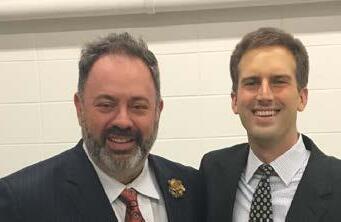
At the age of nine, my parents (both teachers) suggested that I enter the Pike County 4-H Public Speaking Contest. Grudgingly, I obliged and, to my surprise, I enjoyed the experience. I liked it even more when I was proclaimed the Junior Champion! Never mind that I was the sole entry at the Pike County Fairgrounds that morning—I was the winner.
Aside from honing my understanding of the power of the spoken word and how to parlay those experiences into college scholarships, the other thing the 4-H Club taught me was to revere a sense of service to others. This notion would undergird my entire teaching career and serve as my north star throughout my tenure at the four Mississippi schools where I coached— Lumberton High School (LHS), Perry Central High School (PCHS), Hattiesburg High School (HHS), and ADEPT Dropout School.

Never willing to dismiss the army of talented students who I have had the opportunity to coach, I have prevailed on their now adult help to generate community activism beyond high school speech activities and onto social battlefields.
I have sometimes learned things the hard way, through trial and error. Since I have hit every pothole in the road, I feel uniquely qualified to at least share their locations with those who follow!
There is no one path to success, and I acknowledge that many coaches have forged their own formulas to achieve goals. The following represents one old guy’s view of the world and advice that worked for me. Feel free to steal, share, or discard.
Helping others is paramount. If you are a theatre teacher, consider connecting your next production to a realworld cause. I have often
said that theatre certainly entertains but has a deeper obligation to help.
When the opportunity arose in 2005 to mount a play that would help victims of Hurricane Katrina, Brett Boyles (HHS Congress), now Senator Trent Lott’s Chief of Staff, arranged a command performance of The Katrina Project: Hell and High Water, co-written with former student Mackenzie Westmoreland (PCHS Oratory/Dramatic Interp) for the U.S. Congress, a performance that generated half a million dollars for victims of natural disasters.
The 2015 anniversary show allowed Blue Man Group’s Clifton Hyde (HHS Mock Trial) to pen original music for the revival stage production. Our opportunity to help others during the category 5 storm led to performances all across the country, including the NSDA National Tournament in Dallas.
In like fashion, our production of The Guys allowed us to pay tribute to firefighters and other first responders who have
Participating in a media conference for Pine Belt Foundation’s Hattiesburg Half Marathon, which raised hundreds of thousands of dollars for local charities.
given us so much, not only during the attack on the Twin Towers but in everyday life.
Bringing the musical Oklahoma! to the boards gave our actors and stage technicians an opportunity to contribute financially to families who suffered losses when the federal building was bombed in Oklahoma City.
Diversity definitely counts.
COVID-19 and its variants have exposed the inequities in race, healthcare, and economic opportunities in our country. When there was an outbreak of West Nile Disease in Mississippi, my road to involvement went through Jeremy Hirsch (HHS cast of Diviners), now CEO of Spartan Mosquito. We mounted a rapid response team called Mississippi United and headed to Port Gibson to help communities of color who were afflicted. Once there, we staged
product giveaways and an information campaign.
Retired teachers helped us do the same with a pandemic food giveaway in Tupelo. Connecting with Jeff McSwain (PCHS Humorous Interp), founder of a small Black business, Hook’s Catering, generated community funds to assist the local YMCA in spearheading National Healthy Kids Day, which helped educate families on good health practices. It also proved to be a win-win scenario as it secured some business for this struggling Black business owner.
The HHS production of The Laramie Project provided connectivity with the LGBTQ+ community. Our students formed the first high school chapter of Equity Fights AIDS in the country and hosted talk-back opportunities for audience members after each performance with area health agencies.
Staging Freedom Summer explored voting rights challenges for all people and provided a platform for local civil rights leaders.
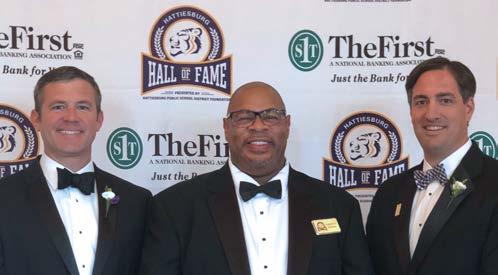

Gender equity matters.
I agonized when my female students lacked scholarship opportunities when compared to their male counterparts, particularly in rural school districts. Former students Jennifer Steele (PCHS cast of The Wiz) and Rebecca Blackwell (PCHS Oratory) helped me establish the Leaf Foundation and provide some balance to the plethora of athletic scholarships available to male students by giving scholarships to deserving young women bound for college.
As Chair of the Mayoral Heath Council in Hattiesburg, I would later use this impetus to create Mother’s Lounge facilities, so that nursing mothers would have clean facilities to nurse while in attendance at public events like football games.
Use all platforms and vehicles available to you.
While most of my adult life has focused on students, professional and civic organizations like the National Board for Professional Teaching Standards (NBPTS), National Education Association (NEA), and American Federation of Teachers (AFT) brought new opportunities to be of service to the teaching profession.
As President of the Mississippi Association of Educators and a national leader of NEA and NBPTS, I had an opportunity to work with local presidents like Dr. Kesia Pope, National Board Certified Teacher (HHS cast of The Dining Room), and other educators to generate a 38% pay increase for Mississippi educators.
As Executive Director of the Hattiesburg Public School District Foundation, I
Congratulating former students Abb Payne and Rob Tatum as they are named inductees to the inaugural Hattiesburg Hall of Fame
worked with Dr. Ted Harden (HHS set crew), now a local optometrist, and Angela White Carter (LHS Duo Interp/ADEPT Executive Assistant), to raise money to provide supplies like Chromebooks for students whose families could not afford technology when schools only offered virtual learning.
Even now, I am forging to the next battle front— the teenage vaping epidemic. Brett Steele (PCHS Extemporaneous Speaking), now an Atlanta area attorney, provides legal assistance for Schools Against Vaping. Current Hattiesburg coach Scott Waldrop (PCHS Congress) is heading up recruiting national student volunteers for LifeSAV’ers, our Teen Advisory Council (SchoolsAgainstVaping. org), and his NSDA Original Spoken Word Poetry national champion Logan Green has agreed to serve as the first national Student President.

Never dismiss your army.
Either these students paid attention to the call to action and service that was instilled in them during their speech and debate days— or, perhaps, the gradebook still wields power! I love more than anything to watch my students continue to achieve in life—like my pair of Scott W’s: Mississippi’s Scott Waldrop and California’s Scott Wheeler (HHS Policy Debate), who now as debate coaches themselves, have produced multiple NSDA national champions; or Jennifer Abraham (HHS Congress), who is working with international refugees via her post at the United Nations; or students who originated roles in Broadway’s Hairspray, Marvel’s Black Panther, and the television drama NCIS. What coach wouldn’t be proud?
My truth is that, whether you are Dr. Tommie Lindsey, Jr., or Liz Cheney, the power of speech is necessarily tethered to public service. Trophies, starring roles, and championships are certainly desirable immediate goals—but if we can teach kids to respect each other as human beings, we will have accomplished a greater good.
THANK YOU!
I salute the NSDA for finding a way to stay relevant in the lives of students. In reality, that vehicle has always been there. I assume that every organization I join is a future tank for the next war. None of this could I have done without the help of supportive parents and visionary administrators.
A coach’s life is hard, but our work matters. I value the hours that each of you put in and the sacrifices that you make for your students. My request is that you know your value and that you demand of your students that commitment to help beyond graduation.
Now, more than ever, our dedicated work in the trenches is needed in real time and in perpetuity, just to produce ordinary people who are battled-tested and ready for service.
Learn more about the NSDA Hall of Fame!
www.speechanddebate.org/ hall-of-fame
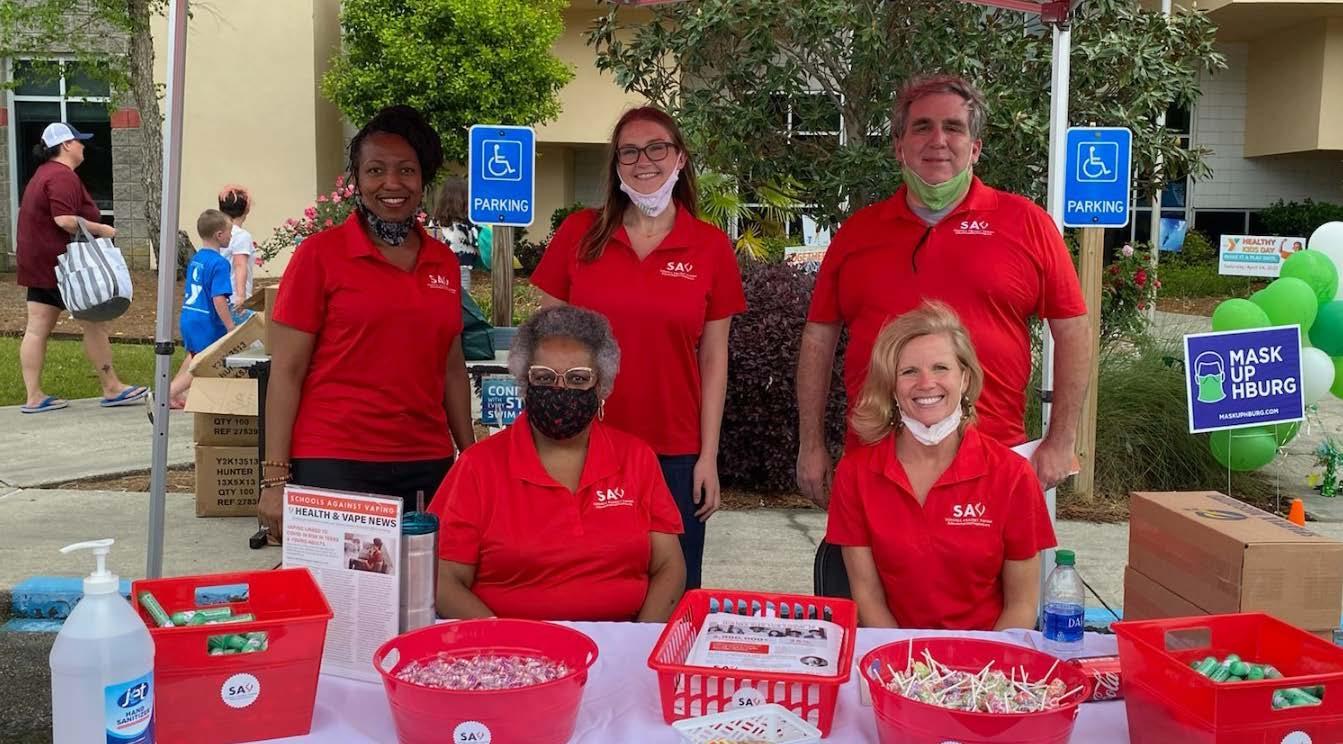

5,000,000+
25%
Vaping is linked to a substantially increased risk of COVID-19 among teenagers and young adults, according to a recent study led by researchers at the Stanford University School of Medicine. Research found that those who vaped were 5 to 7 times more likely to be infected with COVID-19 than those who did not use e-cigarettes. Schools Against Vaping has a two-fold mission:
• Education about the epidemic for impacted schools and communities
• Cessation help for students now addicted to nicotine
The vaping epidemic threatens the health of our students every day, and the remedy for this health crisis begins with us. Become a partner of Schools Against Vaping and arm yourself with the knowledge to bust myths about vaping, spread truth about our children’s health and crack down on vaping in schools. Learn more at SchoolsAgainstVaping.org.





by Cameron Kettles and Miles Wang

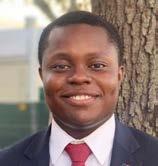
During late July and early August, five members of the 2020-2021 USA Debate team selected to represent the country competed at the World Schools Debating Championships (WSDC). The tournament would have been held in Macau, but this year it was held virtually via Zoom. The team of Cameron Kettles (’22), Guyberson Pierre (’21), Liana Schmitter-Emerson (’21), Miles Wang (’22), and Abbey Xu (’22) finished out the season in the octafinal round against Team Pakistan on the motion, This House supports periodic, fixed-date constitutional conventions in constitutional democracies.
USA Debate placed 11th out of strong teams from 74 countries. Additionally, Miles and Abbey were recognized as 25th and 13th best speakers, respectively.
In the weeks leading up to the championship, the team


trained via Zoom with USA Debate alumni Ishan Bhatt (’19), Anh Cao (’20), Danny Debois (’14), Aditya Dhar (’17), and Luke Tillitski (’19), along with USA Debate coaches Cindi Timmons and Aaron Timmons.
While this training would usually take place in Colorado Springs at the Global Debate Symposium, this year it was held virtually because of the COVID-19 pandemic. The debaters drafted and refined cases for four prepared topics and practiced impromptu prep and rounds within the team and with friends from teams in England, Singapore, Canada, Mexico, Ireland, and the Philippines.
Learning from online competition in 2020, the 2021 championships added more precautions to keep students safe and protect the integrity of the tournament. For example, teams could only communicate in rounds

using one Google Doc that was shared with tournament officials. All impromptu prep communication had to take place via this document.
The team quickly discovered it was difficult to alert teammates to problems without messaging them separately or enabling notifications. For future tournaments that require this process, the team recommends keeping the document open and communicating on it frequently.
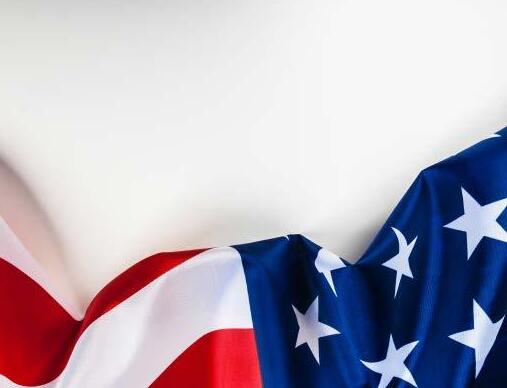
Even though the team only could see other teams after rounds and while waiting for decisions, the WSDC tournament allowed the team to become good friends with debaters from Lithuania, Zimbabwe, Spain, and England. The team valued all the feedback given by incredibly experienced judges after every round and hopes to bring the knowledge gained back to USA Debate for the 2021-2022 season.
Debating with others online, or even just attending a competitive virtual tournament, can be hard to adjust to as a cohesive team. Here are some tips and practices the team found helpful during the WSDC.
Communication isn’t just important during debate. It is just as important, if not more so, to establish clear and honest communication with teammates and coaches throughout the tournament.
During impromptu prep, everyone must be on the same page, as it is very easy for somebody to fall far behind when they don’t understand a concept or are not
familiar with a certain topic. Thus, debaters not only need to read each others’ body language (such as facial expressions or remaining silent) but also need to ask each other if everyone understands what is happening.
A cohesive team narrative is key to success during a round, as the team must be a unit rather than a set of individuals who happen to be on the same side. This led the five debaters to revising the impromptu preparation structure to include 10 minutes at the beginning for clarifications as well as discussion of fundamental questions: why the motion was being set, what were the major clashes, and who were the stakeholders being affected by the motion itself. This prep structure led to a dynamic brainstorm in which people added to others’ ideas.
Debaters must also have proper bench communication during the round. Tournaments may dictate rules for communication, like the WSDC did. Debaters must ensure that no matter the format, everyone is able to access it before rounds start. During practice rounds, teams
also should use the line of communication mandated or preferred in tournament settings.
Furthermore, speakers during the round should be checking the chat constantly in case they missed anything before their speech, and debaters should also be talking to the next speaker about what they need to respond to or prioritize. Sometimes it is best to write the piece of material word for word!
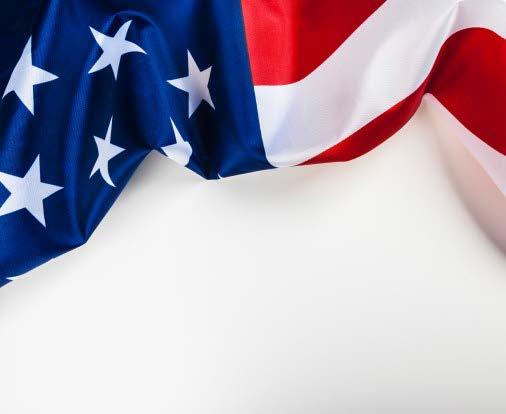
In online competition, World Schools debaters need to choose what format they will use to take Points of Information (POIs)— verbally, visually, or in the Zoom chat. The USA Debate team found that verbal POIs were the best option for them, as they may not be looking at the Zoom screen at the time they are offered during the speech.
However, there may be individual preferences for how to take them (for example, someone with an unstable internet connection may not want to destabilize their audio with someone interjecting audibly, so they would prefer a POI in the Zoom chat).
No matter what, these preferences must be decided as a team before
rounds and announced to the opposing team at the beginning of the round for each speaker’s choice. If the opposing team forgets to state their preference, ask them before their speeches how they would like to take their POIs.
Debaters should establish a back up plan in case someone drops off the meeting during the round. One strategy the five utilized was to have the debaters who were not participating in a round watch the Zoom meeting to see if people (both debaters and judges) disappeared from the meeting, and then mention it in the chat. Contingency plans should also be made if a speaker can’t rejoin the call. For example, the speaker could call someone who is in the meeting and speak over the phone. Or, if they are completely unreachable, the team may decide whether a substitute speaker is needed or is
able to fill in the rest of the time, depending on how much ground the original speech covered.
Debaters should ensure they are taking a rest between and after rounds. Tournaments are often a marathon, and the later rounds usually more stressful as they are power-paired or elims.
The most important thing is to not overburden oneself throughout the process, as staring at a bright screen can hurt someone’s eyes and cause fatigue. When waiting for a Reason for Decision (RFD), the team found it extremely useful to stand up and go outside to look at things far away and let their eyes take a break. It is also necessary to ensure you are well-hydrated and have had enough sleep before rounds, as one’s mood and mindset could make or break a round and change one’s performance.


Meet the 2021 NSDA Original Spoken Word Poetry Champion
by Grace Rogers
Of all of the National Speech & Debate champions, only a select few can declare themselves the first champion of a new event. This year, Logan Green of Hattiesburg High School in Mississippi joins those auspicious few as the champion of Original Spoken Word Poetry, a new event at the 2021 National Tournament.
In Original Spoken Word Poetry, students write and perform original poetry to express ideas, experience, or emotion through the creative arrangement of words according to their sound, their rhythm, and their meaning. It allows the performer to pull from generations of oral tradition and
performance. Spoken Word combines elements of rap, hip hop, storytelling, rhyme, repetition, improvisation, and word play. Spoken Word can be about any topic the performer wishes to speak about, and it often highlights issues that directly affect the performer like social justice, race, politics, community, inequality, gender, identity, or mental health. At its core, it’s all about heart and the emotions and opinions of the performer.
Amanda Gorman, America’s first National Youth Poet Laureate, made headlines for weeks after viewers watched her spoken word performance at the Presidential Inauguration. Gorman’s poem on

“ Black girls across the world are denied their girlhood and seen as less innocent and more mature than their white counterparts , resulting in harsher punishments in every aspect of their daily lives ,” Green said in the introduction to her performance . “ I ’ m a 16-year-old Black girl reclaiming my girlhood .”
National Unity featured her perspective of a young Black woman facing the
future of America. Green tackled a similarly tough topic in her piece at the
National Tournament, which discussed Black girlhood.
“Black girls across the world are denied their girlhood and seen as less innocent and more mature than their white counterparts, resulting in harsher punishments
through a new program, introduced last year, which allowed schools that competed at Districts to enter students in supplemental events at Nationals. She was the only competitor from her school. While she had participated in other
“ As I stand before you today , know that this is a protest. Know that my body Black , and beautiful , and worthy in every way remains a vessel for the Black girls who were taken too soon by the ones who swear to protect us .”
in every aspect of their daily lives,” Green said in the introduction to her performance. “I’m a 16-year-old Black girl reclaiming my girlhood.”
“I was inspired to write this poem from my own experience with being seen as more mature than I am simply based on prejudice and societal standards,” she told us after the tournament.
“I wrote this poem as a love letter to Black girls because I believe that we can all attest that we are always being put on a chopping block and held to a different standard.”
Green participated in the National Tournament
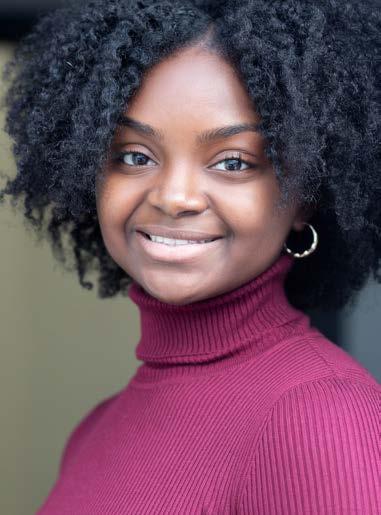
spoken word poetry competitions, she found her experience at the National Tournament especially powerful.
“Competing in a brand new event was exciting!”
Green said. “It wasn’t like any other event that I had competed in before, so I didn’t know what to expect. It allowed me to authentically perform and it was a great learning experience as well.”
One of the challenges of competing in a new event is the lack of expectations and norms for the activity.
“I appreciated the independence that I had in writing my own
material,” Green said. “I had a lot of support and help, but I’m grateful that my speech family allowed me to learn how to maneuver on my own. I really learned a lot from this experience.”
Green also shared some advice for students and coaches who are considering entering in Original Spoken Word Poetry next year.
“Competitors, give it your all,” she said. “Whenever you do something, always do it to your best ability. Never sell yourself short. You are able to accomplish anything that you take the time out to work for. Coaches, always encourage your students because some might not say it, but we always need reassurance that we’re going in the right direction. I’m so blessed to have coaches who always
make sure I know that I am on the right path. It gives competitors the confidence that we need to go out there and give everything we’ve got.”
Original Spoken Word Poetry offered students an outlet to perform their own poetry, an event that’s never been offered as a supplemental event at the National Tournament before, and an opportunity that Logan Green couldn’t pass up.
“My voice matters, and every story deserves to be told,” Green said. “I am forever grateful for this program, and I will always credit it to the woman I’m becoming.”
Grace Rogers serves as Marketing Communications Specialist at the NSDA.
Congratulations to the following students who earned Speaking and Service Awards in 2020-2021! This award annually recognizes member students who go above and beyond in their service to their teams, schools, and communities. Students receive this award when they earn 200 service points in a given year, the maximum number possible in a school year in our Honor Society. Visit www.speechanddebate.org/studentrecognition to learn more.
Joseph Rhee Little Rock Central High School AR
Ruth Walters Little Rock Central High School AR
Sanchet Agarwal Bellarmine College Prep CA
Jason Cappelloni Bellarmine College Prep CA
Charles Damaso Bellarmine College Prep CA
Arnav Dhingra Bellarmine College Prep CA
Nihaal Konda Bellarmine College Prep CA
Ryan Milligan Bellarmine College Prep CA
Nimai Talur Bellarmine College Prep CA
Sungjoo Yoon Burbank High School CA
Veronica Hernandez Cajon High School CA
Alaina Mupparthi Cupertino High School CA
Priya Patel Folsom High School CA
Abhishek Koul Foothill High School CA
Kiran Suresh Foothill High School CA
Isha Chudasama Los Altos High School CA
Angelina Lue Los Altos High School CA
Anagha Rajesh Los Altos High School CA
Nabeeha Ali Mountain House High School CA
Shania Dhanaraj Mountain House High School CA
Ananya Domala Mountain House High School CA
Saksham Madaan Mountain House High School CA
Vishnu Matta Mountain House High School CA
Elizabeth Su Mountain House High School CA
Anisha Yeddanapudi Mountain House High School CA
Catherine Tong Notre Dame San Jose CA
Kate Drum Polytechnic School CA
Ahmad Ismail Wilcox High School CA
Aryan Roy Cherry Creek High School CO
Isaac Fry Resurrection Christian School CO
Maria Perez Colegio Bilingue New Horizons FL
Vera Tolari Colegio Bilingue New Horizons FL
JoAnn Brahms CAM High School IA
Abigail Follmann CAM High School IA
Whitney Holaday CAM High School IA
Madison Holtz CAM High School IA
Paige Jensen CAM High School IA
Madyson McKee CAM High School IA
Emily Plagman CAM High School IA
Marissa Spieker CAM High School IA
Nuveria Tajammul College Preparatory School Of America IL
Ava Concannon Highlands Latin School IN
Isabella Concannon Highlands Latin School IN
Isabella Gutwein Highlands Latin School IN Audrey Lach Highlands Latin School IN Rosemary Vannoy Highlands Latin School IN
Ayush Arora Munster High School IN
Gabrielle Brennan Munster High School IN Elizabeth Fesko Munster High School IN Rebecca Franco Munster High School IN
Lainie Gideon Munster High School IN Keira Hawk Munster High School IN Gage Hoekstra Munster High School IN
Charles Iverson Munster High School IN
Gavin Kenning Munster High School IN Mallika Keralavarma Munster High School IN Sana Khan Munster High School IN
Emma Saville Mulvane High School KS
Rahul Madhavan Wichita Collegiate Upper School KS
Emma Mantovani Wichita Collegiate Upper School KS
Ayaan Parikh Wichita Collegiate Upper School KS
Samuel Chang Bowling Green High School KY
Celia Dawahare Henry Clay High School KY
Lindsey Guilford Henry Clay High School KY
Joseph Ammons Rowan County Sr High School KY
Theo Datta
Shona Goodkin
Shalini Biju
Newton South High School MA
Newton South High School MA
Shrewsbury High School MA
2020-2021
(continued)
Rithika Prasad Shrewsbury High School MA
Jennifer Lin Richard Montgomery High School MD
Isabelle Fontana Stone Ridge School of the Sacred Heart MD
Madeline Fontana Stone Ridge School of the Sacred Heart MD
Emanuelle Hair Stone Ridge School of the Sacred Heart MD
Preeti Kulkarni Stone Ridge School of the Sacred Heart MD
Sofia Morra Stone Ridge School of the Sacred Heart MD
Hallie Stallings Stone Ridge School of the Sacred Heart MD
Julia Vaughan Stone Ridge School of the Sacred Heart MD
Navin Durbhakula Winston Churchill High School MD
Fallon Eggett Bangor High School ME
Mitchem Smith-Miller Central High School MO
Quentin Trull Jefferson City High School MO
Ryleigh Felty Waynesville High School MO
Gabriel Schuhl Ardrey Kell High School NC
Abigail Hahn Charlotte Catholic High School NC
Carter Mann Burwell Jr-Sr High School NE
Akshat Parthiban Thomas Edison EnergySmart Charter NJ
Anika Parthiban Thomas Edison EnergySmart Charter NJ
Michael Bellia Chaminade High School NY
Michael Byrne Chaminade High School NY
James Cullen Chaminade High School NY
Dylan Long Chaminade High School NY
Rachel Woo Great Neck South High School NY
Emily Rhoads Mount Mercy Academy NY
Destynn Keuchel Hawken School OH
Krishna Mukunda Hawken School OH
John Dragos John F. Kennedy Catholic High School OH
Ben Kissinger Wadsworth City Schools OH
Andrew Piepho Wadsworth City Schools OH
Flannery Gonzales Cleveland High School OR
Sadie Nichols Cleveland High School OR
Daniel Wittenberg Cleveland High School OR
Kolitha Perera North Allegheny High School PA
Natasha Porwal North Allegheny High School PA
Hannah Shin North Allegheny High School PA
Shria Shyam North Allegheny High School PA
Gloria Wang North Allegheny High School PA
Graham Wolfe North Allegheny High School PA
Moira Connell The Ellis School PA
Silvana Cuervo Riverside High School SC
Claire Cullen Riverside High School SC
Ana de la Llave Riverside High School SC
Eva De la Llave Riverside High School SC
Laurel Holley Riverside High School SC
Valentina Jara Riverside High School SC
William Lovin Riverside High School SC
Zachary Simpson Riverside High School SC
Mathieu Sleiman Riverside High School SC
Grant Denny Amarillo High School TX
Caitlin Kalb Bridgeland High School TX
John Falavolito Clear Falls High School TX
Meghan Flanaghan Friendswood High School TX
Caden Swaney Grapevine Faith Christian School TX
Alek Araguz Harlingen High School South TX
Dana Garibaldi James Nikki Rowe High School TX
Zach Bolash Round Rock High School TX
Mallika Jade Round Rock High School TX
Sohali Vaddula Round Rock High School TX
Mary Katherine Flage THEO Christian TX
Roopa Bindingnavele W. B. Ray High School TX
Genevieve Cox W. B. Ray High School TX
Suhawni Narang W. B. Ray High School TX
Connor Rooney The Potomac School VA
Jay Siva Thomas Jefferson High School Science & Tech VA
Fiona Fitzpatrick Capital High School WA
Nathanael Ren Brookfield East High School WI
Parker De Deker Neenah High School WI
Joshua Hansen Jackson Hole High School WY
Congratulations to the following schools that were granted charter chapter status in 2020-2021! Becoming a charter chapter is the highest honor for high schools in the NSDA. A chapter is automatically chartered if, after at least one year at member status, it has earned at least 50 degrees within a three-year period. Small schools with a grade 9-12 enrollment of fewer than 500 students must earn at least 25 degrees within a three-year period. For more details, visit www.speechanddebate.org/school-recognition
Academy Of Our Lady Of Peace High School CA
Arcadia High School AZ
Atascocita High School TX
Avon High School IN
Belleville Township (East) High School IL
Bergen County Academies NJ
Bethesda Chevy Chase High School MD
Big Horn High School WY
Billings Central Catholic High School MT
Burnsville Sr. High School MN
Cardinal Gibbons High School FL
Center For International Education FL
Central High School TX
Clover Hill High School VA
Crown Point High School IN
Dunlap High School IL
East Helena High School MT
Emery High School UT
Fergus High School MT
Folsom High School CA
Francis Parker School CA
Frenchtown High School MT
Grandview High School TX
Great Falls Central Catholic High School MT
Greenfield High School CA
Haines High School AK
Hampton Roads Academy VA
Harvard-Westlake School CA
Henry Sibley High School MN
Homer High School AK
Homer High School NE
John Marshall Senior High School MN
Jordan High School TX
Knott County Central High School KY
Kodiak High School AK
Lafayette High School KY
Lamar Academy TX
Lemont Twp High School IL
Maxwell High School NE
Middle College High CA
Mission Early College High School TX
Mount Saint Mary Academy NJ
New Century Technology High School AL
Nickerson High School KS
North Star Academy High School NJ
Northwest Canal Fulton High School OH
Norwalk High School IA
Okemos High School MI
Ore City High School TX
Osceola County School For Arts FL
Otay Ranch High School CA
Our Lady Of Lourdes Academy FL
Our Lady Of The Elms High School OH
Pampa High School TX
Perham High School MN
Phillips Academy-Andover MA
Phillips Exeter Academy NH
Robert E. Lee High School TX
Roosevelt High School WA
Science Hill High School TN Shepherd High School MT
Sidney High School MT
Sidney High School IA
Spring Early College Academy TX
Thales Academy Rolesville High School NC
Trinity Collegiate School SC
University Schools CO
Utah Military Academy UT
Warsaw Community High School IN
Washington International School DC
West Windsor-Plainsboro High School South NJ
Westfield High School VA
Xavier High School NY
as told to Annie Reisener
While the experience would have been even more surreal in person, even sitting behind a Zoom screen as students’ names were called during the concluding ceremony of the National Tournament, I was a nervous wreck. To be completely honest, I still haven’t watched the awards ceremony for this very reason.
I can say with certainty that the feelings of humility, pride, and gratitude I felt once I learned I had been named Student of the Year remain today. However, since I received this honor, I have spent much time reflecting on the years I spent in this activity and the broader community to which I belonged and still call home.
It’s hard to adequately describe how important speech and debate has been in the formation of the consciousness, practices, and qualities that I now take for granted, and I am not

alone in this experience. To be clear, I endured multiple forms of discrimination in this space. At the same time, it was really the only home I had while experiencing hardship at home, at school, and personally. I do not mean to discredit the amazing potential that the speech and debate community has, nor how much progress has always been made. But what I have learned in many advocacy circles inside the space, and while competing myself, is that there is still much to learn and even more to put into practice.
This community has the potential to and already has shaped the next generation of revolutionaries, activists, leaders, and overall, individuals with strong communication abilities and a willingness to serve their communities in whatever way they can. That is why despite everything I have experienced, I still believe in the power of this
space—and I say space, as speech and debate is not just an activity, but a community—not just at the high school or collegiate level, but working its way up into the very fabric of our society.
I do not have the answers, and no individual in this community will, but by understanding our positionality, working through consensus, and being intersectional at every point in our advocacy, I know that this community can implement the policies, and if necessary, undergo that radical change necessary to truly capitalize on this space’s transformative
potential. This might look like advisory panels, working with students to understand their needs, more research, better policies, or more.
While I am moving outside the competitive part of this community, I am very excited to continue to represent this activity in a public capacity as a student who competed and is now ready to be an advocate on behalf of the community that I called home, and will continue calling home.

Dear Colleagues,
I am incredibly honored to be selected as the NSDA High School Administrator of the Year. When I joined the speech and debate team in high school, I had no idea that forensics would play such a significant role in my life and career. The skills I learned as a student prepared me to be a successful teacher and administrator. The relationships I built as a speech and debate coach have lasted far beyond the last tournament.
I am very proud that I have been able to support a program that provides those skills and experiences for my students at Gabrielino High School. As a principal, I know that a strong speech and debate team contributes to the academic foundations and reputation of a school. To make this happen, an administrator has to be committed to providing funding, supporting travel, showcasing successes, supporting holding tournaments on campus, and ensuring that speech and debate courses are an integral part of the academic program. Gabrielino’s outstanding speech and debate program is a shining example that the approach works.
Thank you to the National Speech & Debate Association for this recognition. Many thanks to Gabrielino High School’s exceptional speech and debate coaching staff, and all of the Screamin’ Eagles, past and present. You are all amazing! Thank you for continuing to inspire my love of forensics.
Sincerely,
Sharron Heinrich
Sharron Heinrich Principal, Gabrielino High School, California 2021 NSDA High School Administrator of the Year


We are currently accepting applications for the 2021-2022 school year!
Big Questions is a debate format in which high school and middle school students will grapple with complex worldview questions. They debate both sides of a topic determined at the beginning of the school year. Schools are eligible to earn thousands of dollars by facilitating Big Questions debates. VIRTUAL EVENTS ARE WELCOME!
Big Questions is an accessible debate format that can be added to your tournament, held during your classroom period, or even done internally amongst your team.
The Big Questions format involves two opposing sides debating a topic concerning the intersection of science, philosophy, and religion. Students can choose to compete individually or with a partner.
Competitors are assigned a side, present the case, engage in rebuttal, and participate in question periods.

Due to the demand for the Big Questions grant, only NSDA members will be eligible to receive funding. If you currently are a non-member school, you can use part of your Big Questions grant to cover the cost of membership!
Contact us at info@speechanddebate.org with questions about how to get involved today!
GET INVOLVED
1. VISIT speechanddebate.org/ big-questions to learn more about the Big Questions debate format and reporting requirements. Apply early— funding is limited.
2.
PROMOTE , HOLD YOUR EVENT , and turn in a brief form afterwards to PROVIDE FEEDBACK on the event.
3. SPEND the Big Questions grant award! You can purchase supplies for your classroom or fund speech and debate activities.

www.speechanddebate.org
